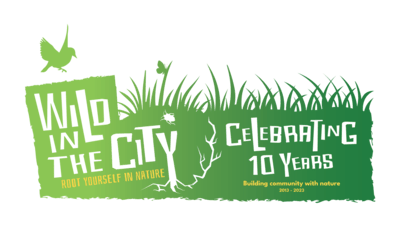
Nature Connectors
Words: Beth Collier. Photos: Beth Collier and Jess Le. 14 June 2018
Welcome to our world
Nature Connectors are guiding people in exploring beautiful natural settings in and around London.
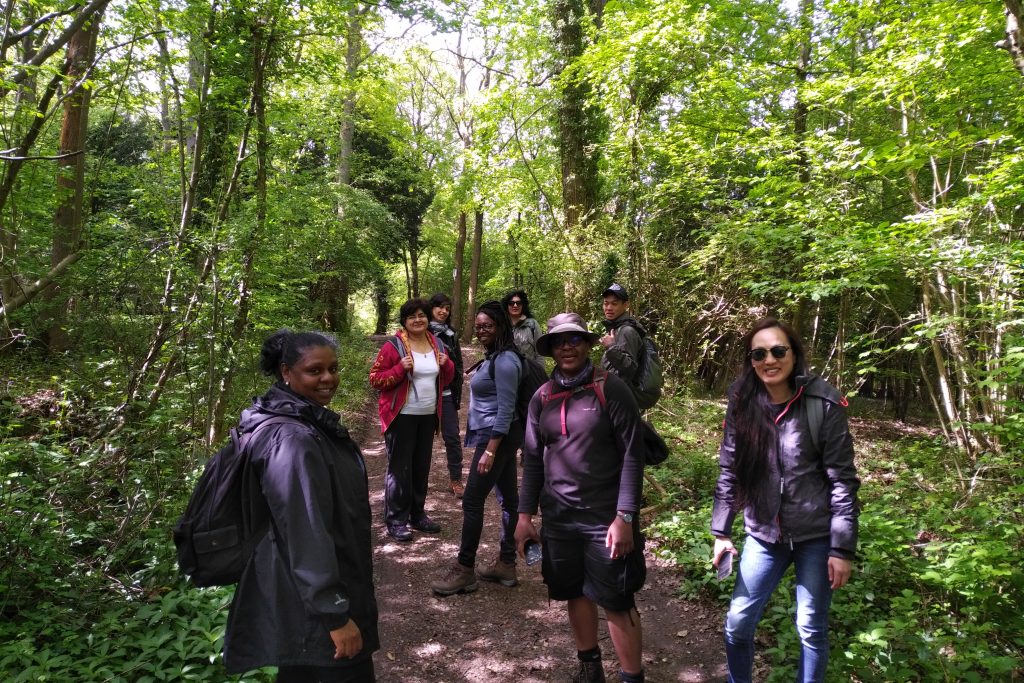
Our aim is to help Londoners nurture a closer relationship with the natural world and with others: learning woodland living skills, wildlife identification and traditional crafts.
Why Nature Connectors?
People of colour currently spend less time in nature in the UK than white people; therefore missing out on the pleasures and health benefits, and are less involved in conserving and protecting green spaces.
There is a widely acknowledged under-representation of black leadership within the environmental sector.
Black, Asian and minority ethnic people are rarely presented as knowledge holders in natural spaces in the UK, further increasing a perception that green spaces are not for us.
People of colour often feel unwelcome within mainstream environmental organisations and in public green spaces. We are raising awareness of these barriers and starting an important dialogue within the environmental sector.
The programme
Nature Connectors course takes place over 4-6 dates, normally run over consecutive weekends, providing immersive learning experience that supports people from black, Asian and minority ethnic backgrounds in London to feel more comfortable and confident in natural spaces. It increases our knowledge and develops leaders who can pass on their skills to help others engage with nature.
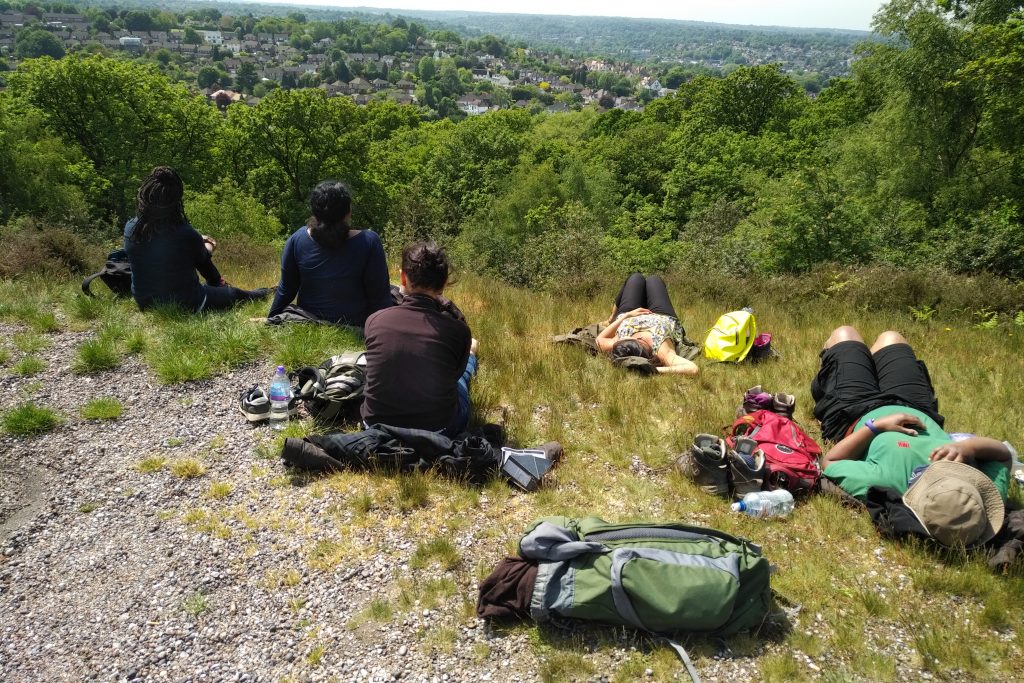
Over the 4-6 weeks, groups explore local green spaces, learning wildlife identification, woodland living skills, natural history, traditional crafts and connecting around the campfire in therapeutic reflection on barriers faced by people of colour in accessing nature.
We place an emphasis on building community, with consideration given to how we treat each other and communicate.
We use the skills of our ancestors to nurture a deeper connection with the natural world; developing a sense of connection to people and place and a sense of belonging to communities past and present.
Participants leave with the knowledge and confidence to be able to lead their own family, friends and communities in enjoying time in nature.
The first phase of the programme focuses on leadership in urban parks and woodlands.
“Why we didn’t go before?”
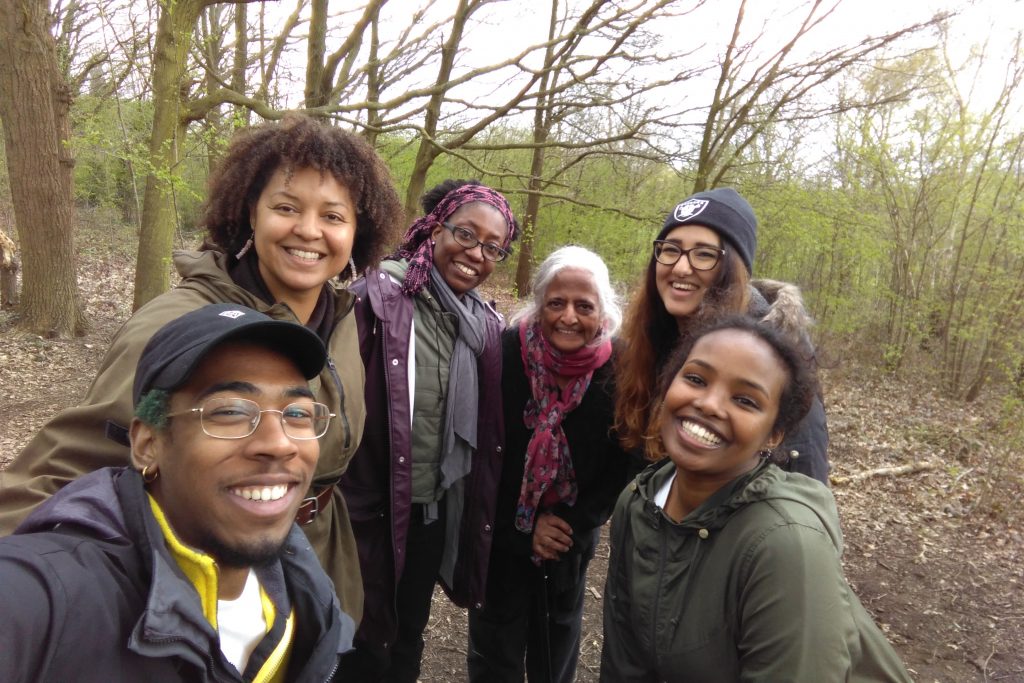
Whilst people of colour are often very connected to nature in countries of heritage, several factors contribute to a disconnect in the West. For example, the pressure to build new lives; experience of hostility from white communities less used to encountering black people; feeling exposed and more vulnerable in areas where there aren’t other people of colour; not having older generations who can teach us about the nature here, and not having connections with established locals who could teach us.
Some of the barriers have been;
- Experiences of racism
- Older generations didn’t feel safe so didn’t take their children and grandchildren out into nature
- Feeling vulnerable and exposed with fewer people of colour present
- Gathering in cities to feel safety in numbers
- Where tending land in countries of origin is associated with subsistence and hardship, connection with nature can be rejected as lower status
- Nature can be associated with hard work rather than rest and leisure
- For those who have experienced poverty, being clean and tidy can be linked to social status when there is little income for frequent washing of clothes or new outfits
- Feeling that nature pursuits were for white middle class
- Experience of othering by environmental organisations
- Urban culture developed in which concrete is seen as progressive and nature as backward
- Natural world comes to seem alien, boring, pointless
For many people of colour, the emotional connection with nature is strong, but relationship dynamics with other humans have made us feel unsafe.
Many people of colour are left feeling that we don’t belong in natural settings, that we are unwelcome or that nature has no use to us.
Attitudes of organisations and white practitioners
Where participants had tried to engage with largely white middle class environmental and nature based organisations and their activities, they had been made to feel that they didn’t belong;
- Not seeing people who ‘looked like us’ made people feel uncomfortable
- Experience of othering
- Not being received as if our presence was normal, or unremarkable, made us feel unwelcome
- Practitioners who had a hostile gatekeeper attitude; that nature was theirs and that they were sharing it with us, that nature is their last white bastion and that we were interlopers
The attitudes of white professionals can be a barrier to people of colour in engaging in nature activities and feeling safe.
Wild in the City have found that both adults and children tend to feel safe and respond to people who look like them.
Overcoming barriers
We believe the most impactful and immediate response to increasing the engagement of people of colour is to work with adults, and increase the number of leaders from within these communities.
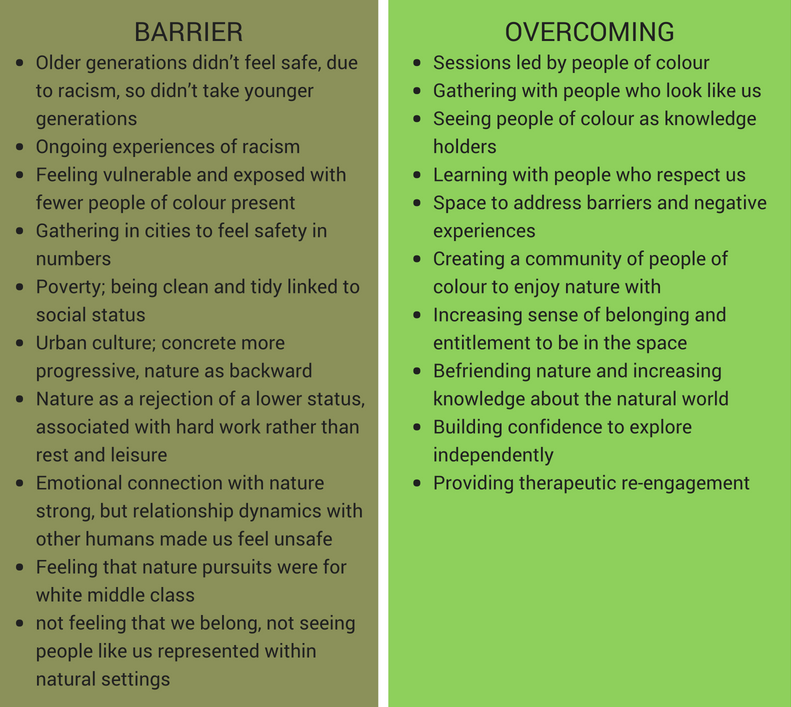
Children might attend nature activities with school but if there is no one within the family to take them out and continue the nature relationship then the impact, though welcome, is more limited. That’s why we’re training adult volunteers from black, Asian and minority backgrounds to feel comfortable and confident engaging others in nature.
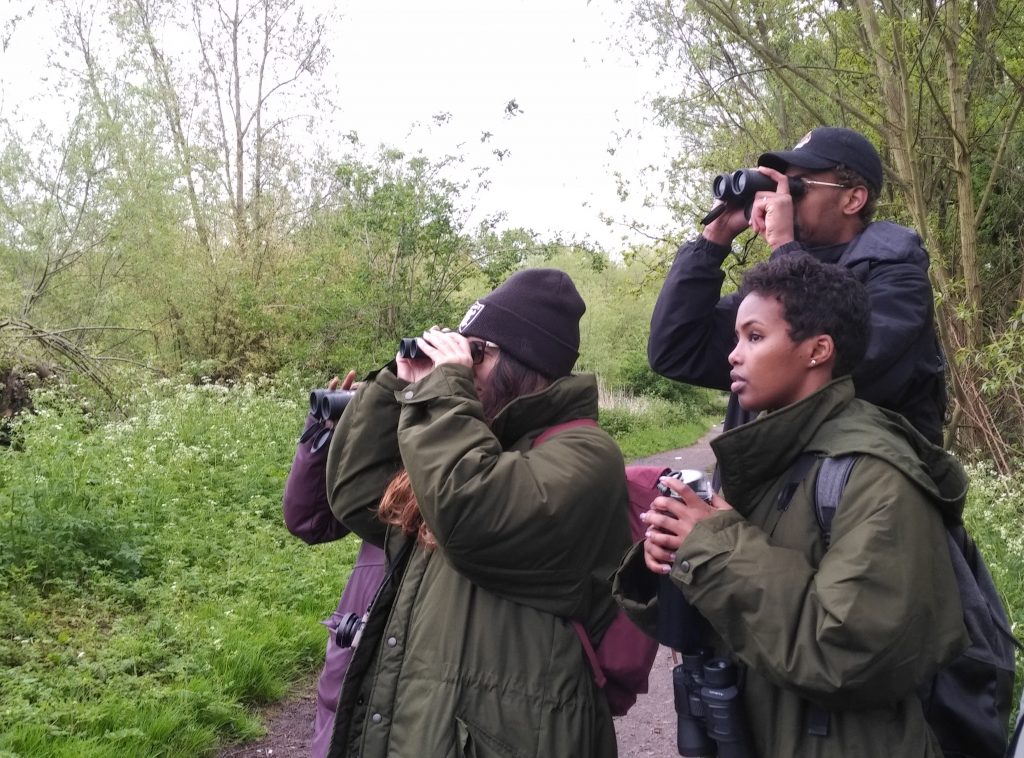
Therapeutic re-engagement
Nature Connectors provides a space to explore the emotional harm of disenfranchisement, negative encounters and the loss of connection. By creating a space to share feelings and thoughts about our place in UK’s natural environment, we are supporting people in addressing the harm inflicted by the barriers they have encountered.
Learning on the programme
Natural history
Croydon is a special borough, with stunning natural spaces within its urban and rural districts. The London borough has a range of diverse habitats – many of international scientific interest – in stark contrast to its image of concrete and deprivation.
-
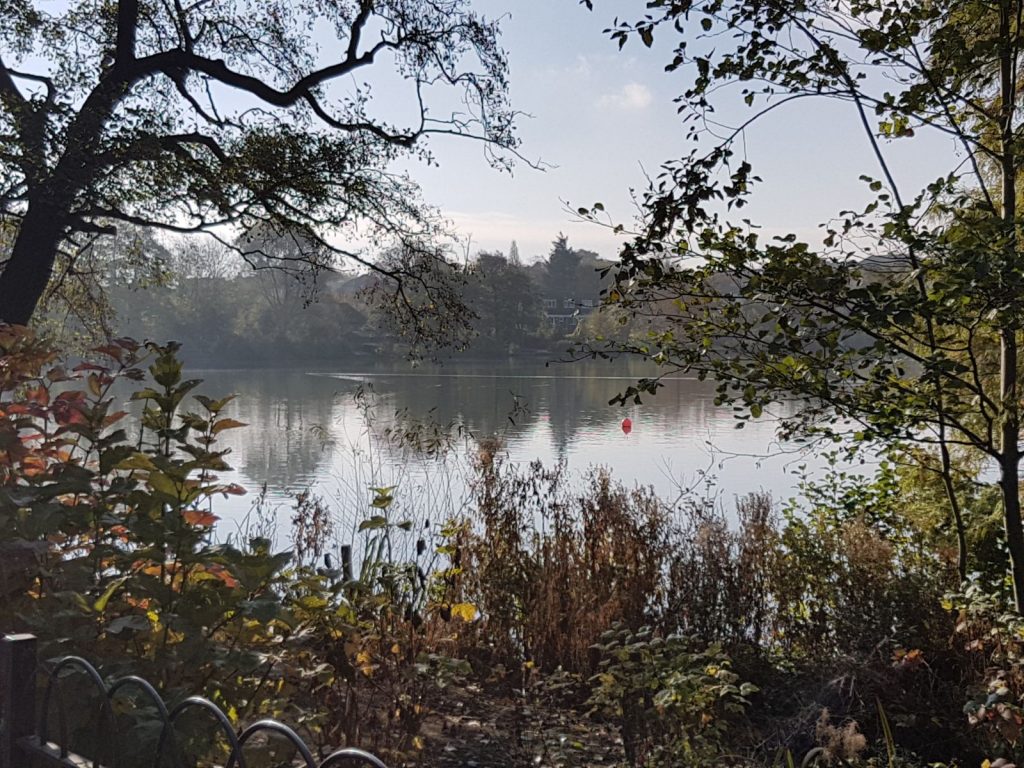
South Norwood Lake -
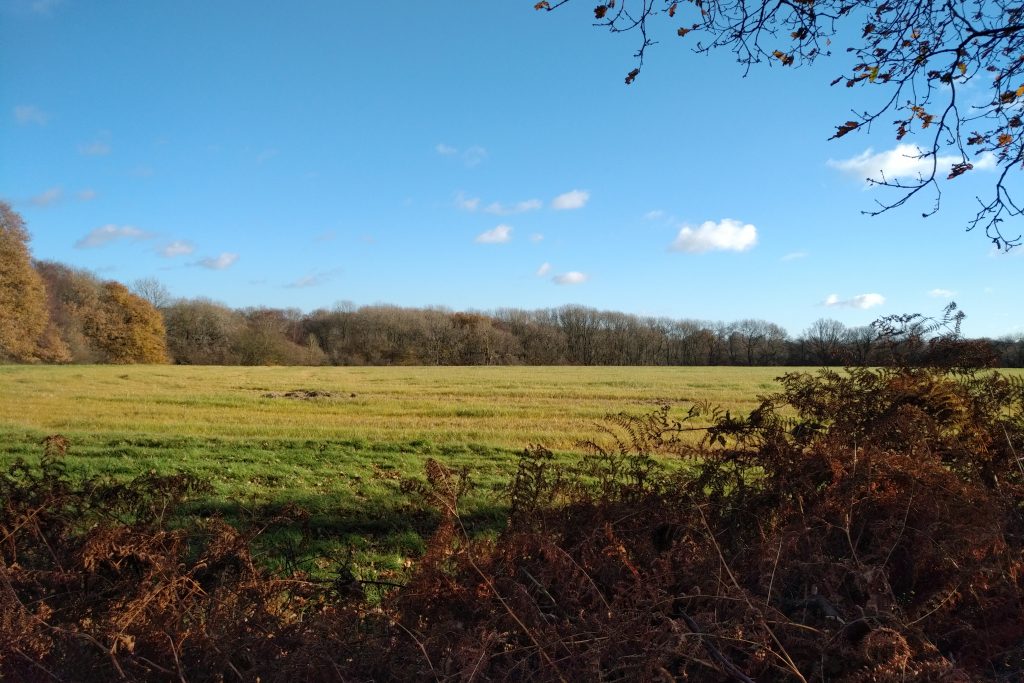
Chalk grassland -Hutchinson’s Bank -
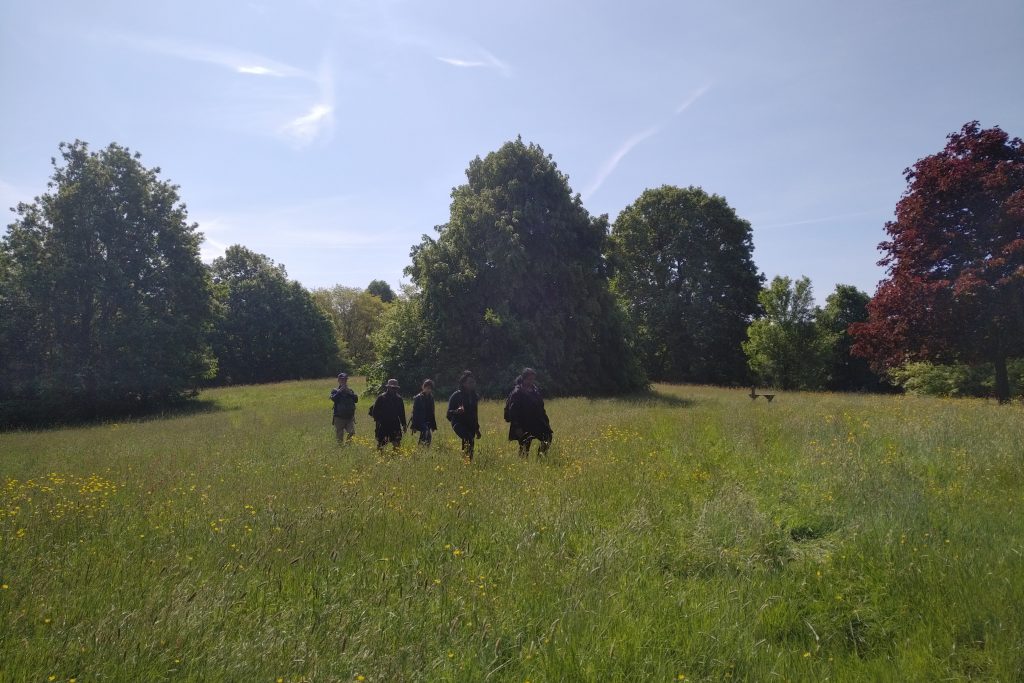
Open parkland – Lloyd Park -
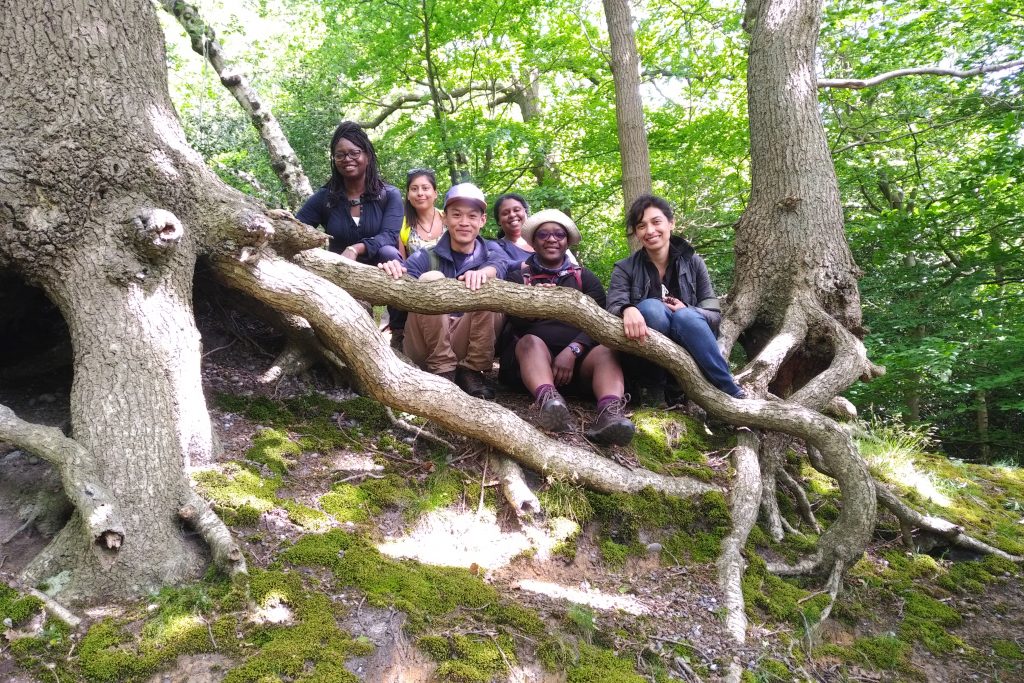
Beech & Oak Woodland – Croham Hurst Wood -
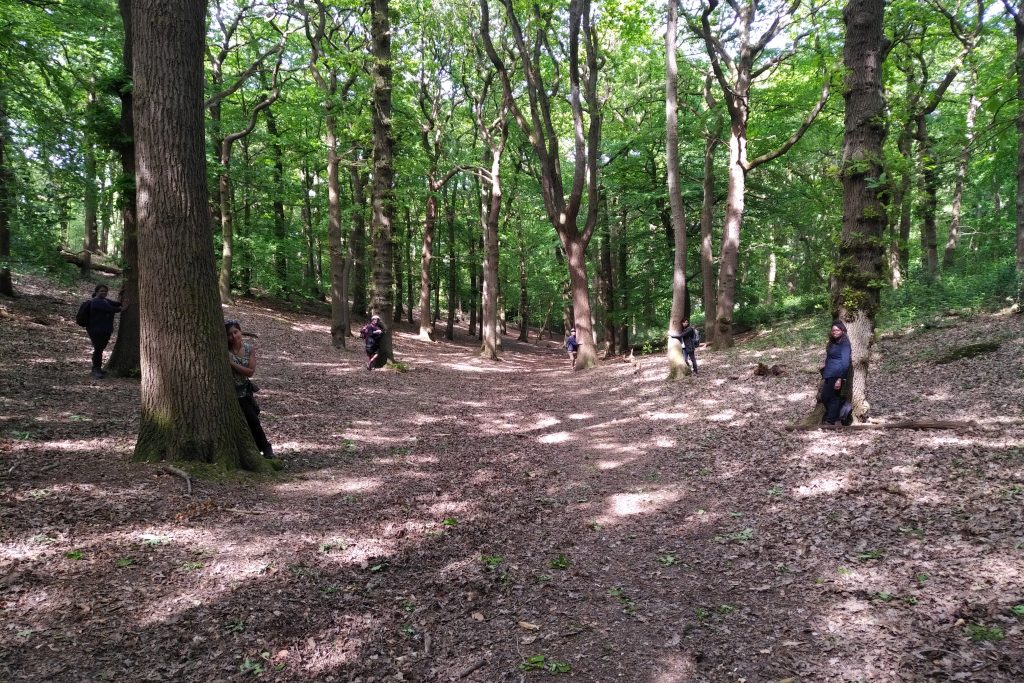
Semi-ancient, predominantly Oak Woodland – Great North Wood (remnant) -
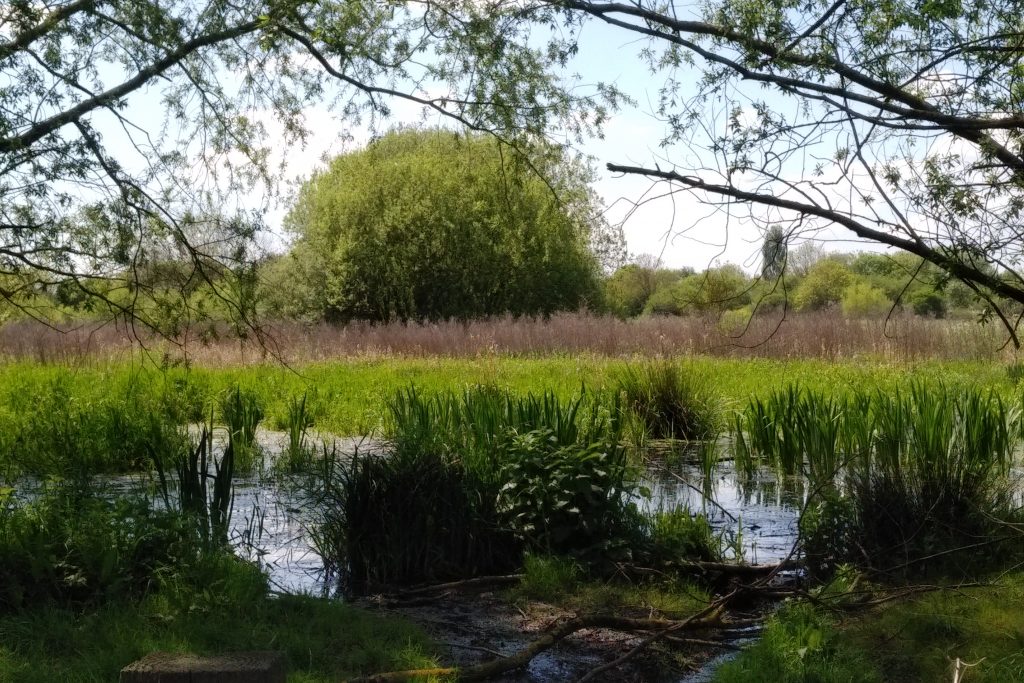
Wetland – South Norwood Country Park -
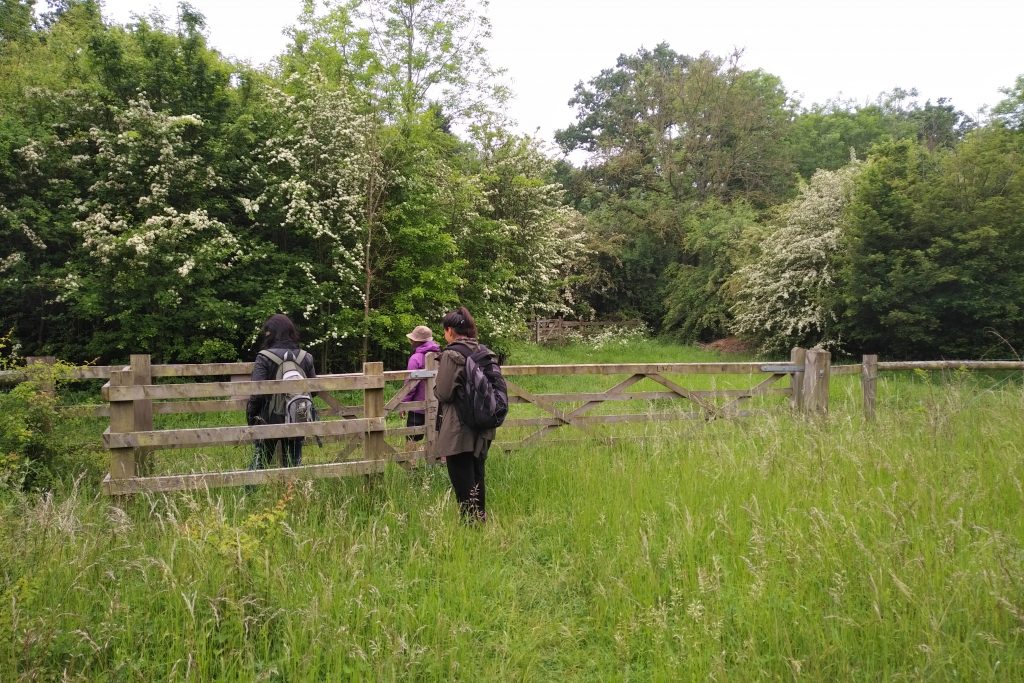
Arable Farmland – Farleigh/Tandridge -
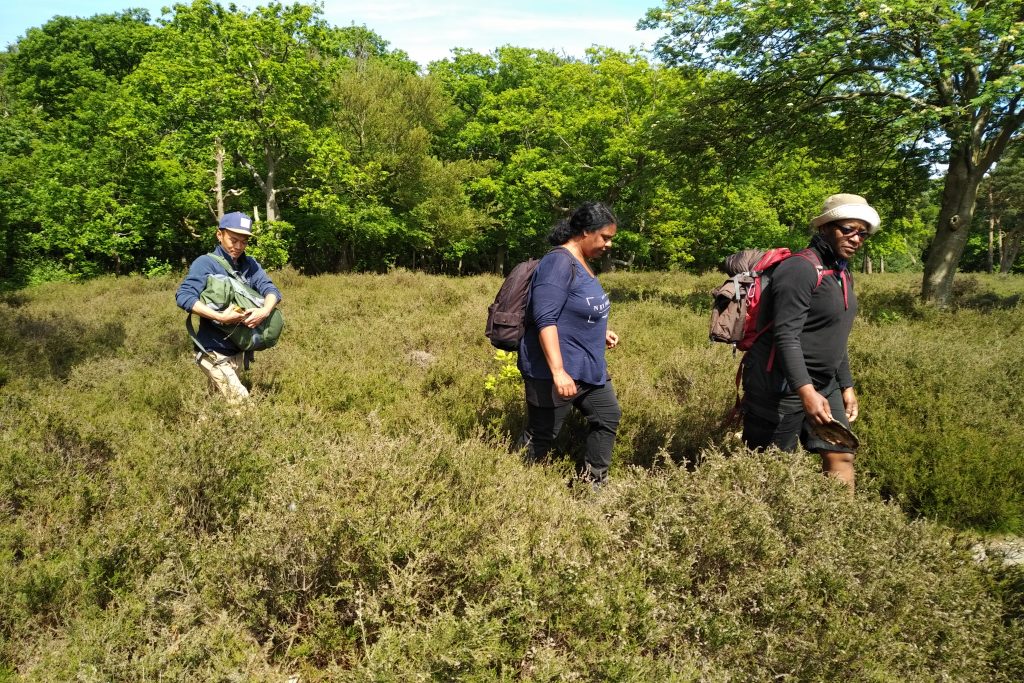
Heathland – Addington Hills
Bushcraft
Bushcraft describes skills and practices for living comfortably in nature. Traditionally passed down orally between generations, it’s about using nature as a resource to support our needs for emotional, physical, social and spiritual nourishment.
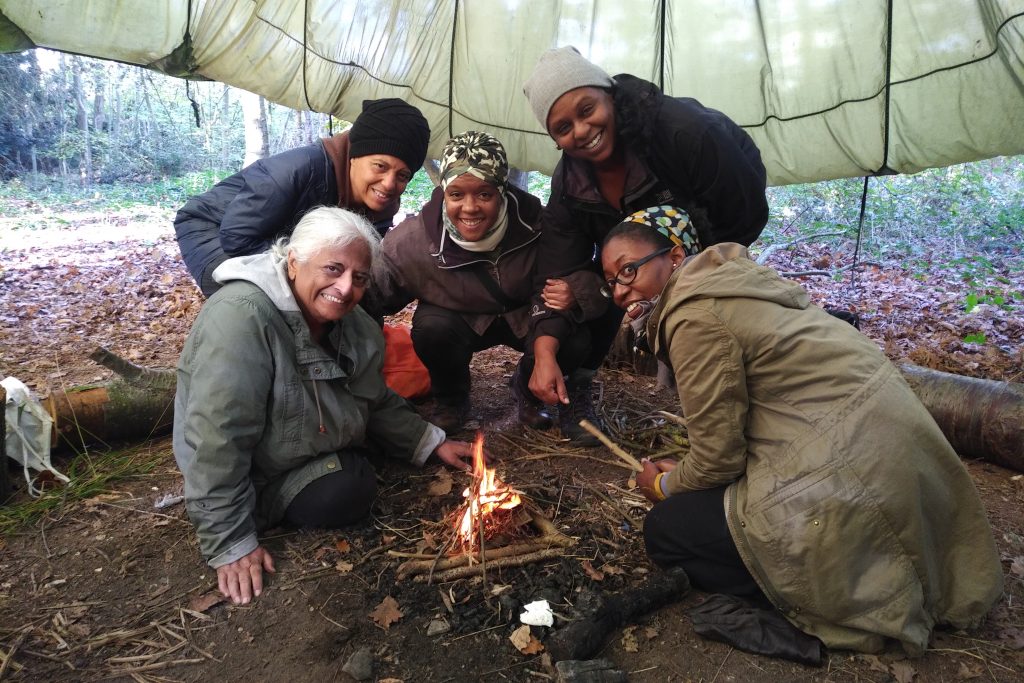
Our focus as Nature Connectors is not just on practical nature skills but also the skill of communication and being part of a group – sometimes this can be lost in a modern culture where we feel we don’t need others; when we can flick a switch for heat, light and to feed ourselves. In order to live rather than just survive in nature co-operation, consideration, self awareness, empathy and assertiveness come to the fore.
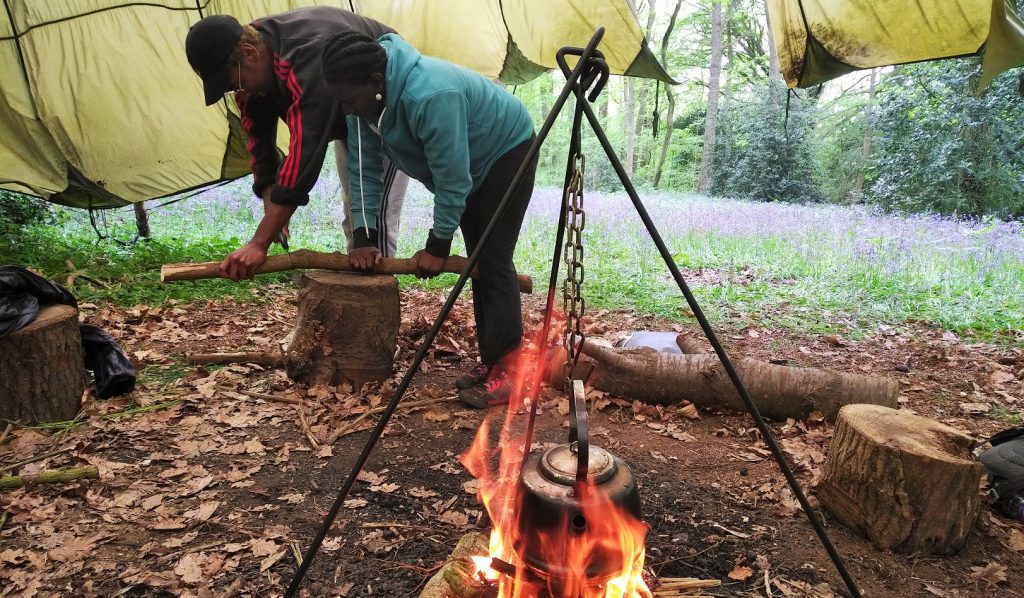
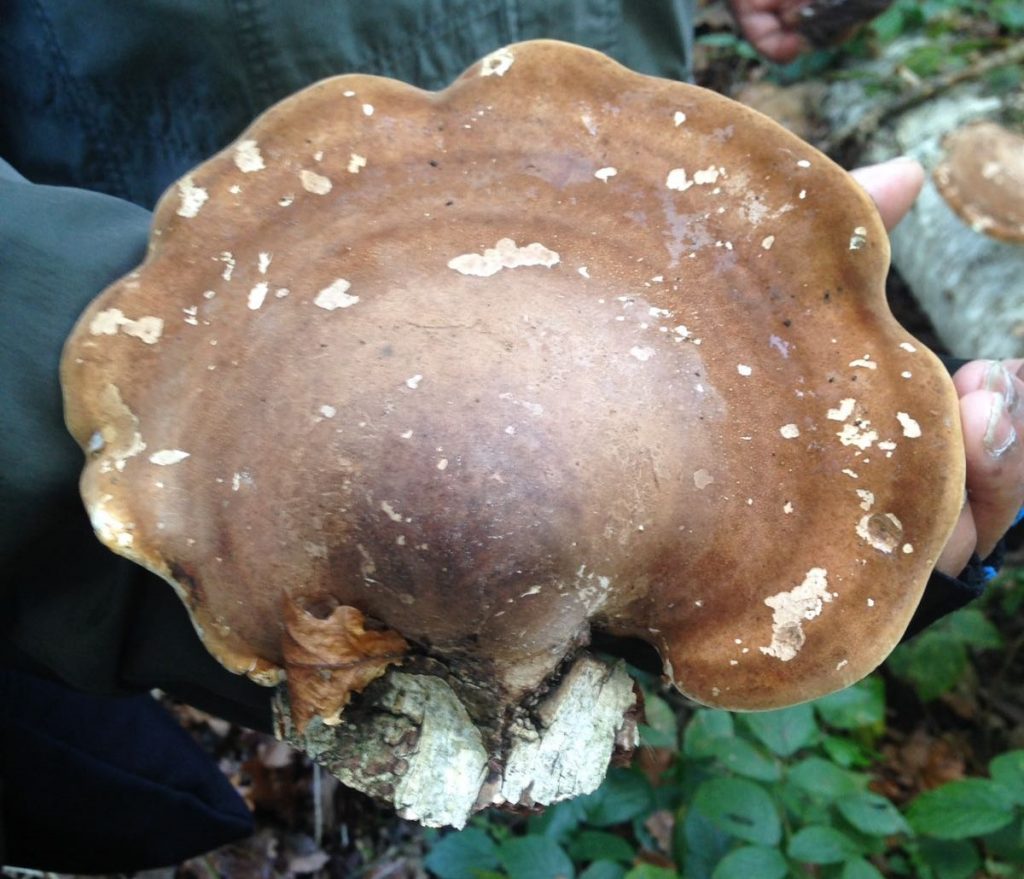
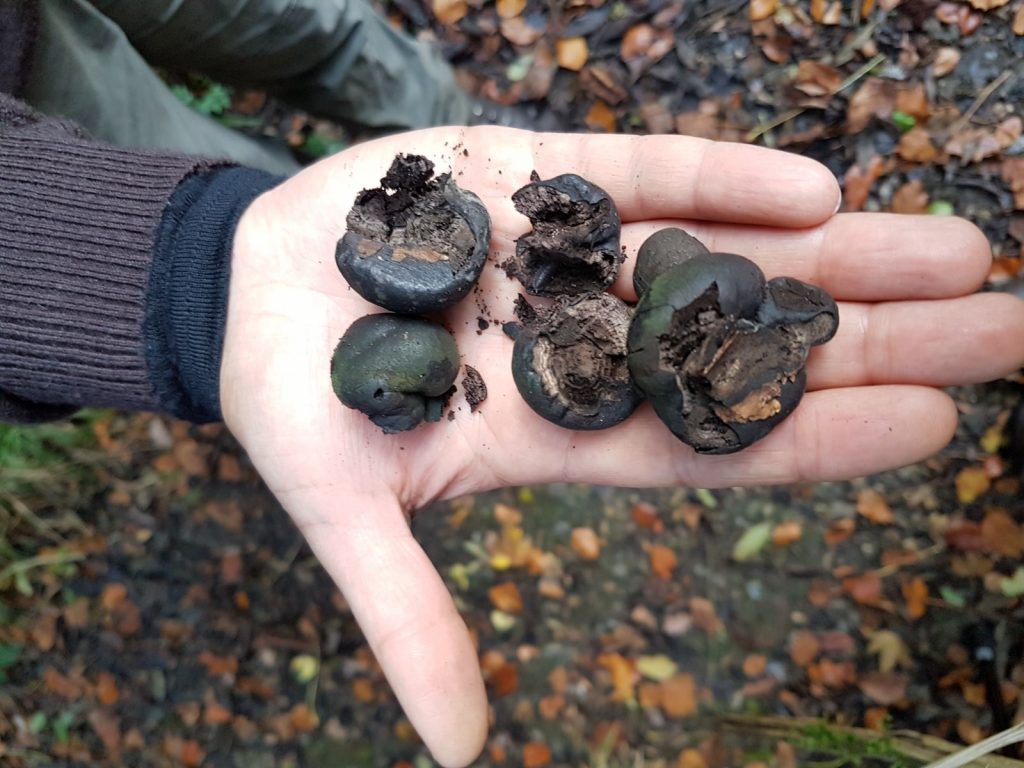
Wildlife Identification
London is home to over 13,000 species of plants and animals. We spend time getting to know species living in our local habitats, including learning plant names, traditional uses and folklore; and identifying animals including from tracks and signs.
-
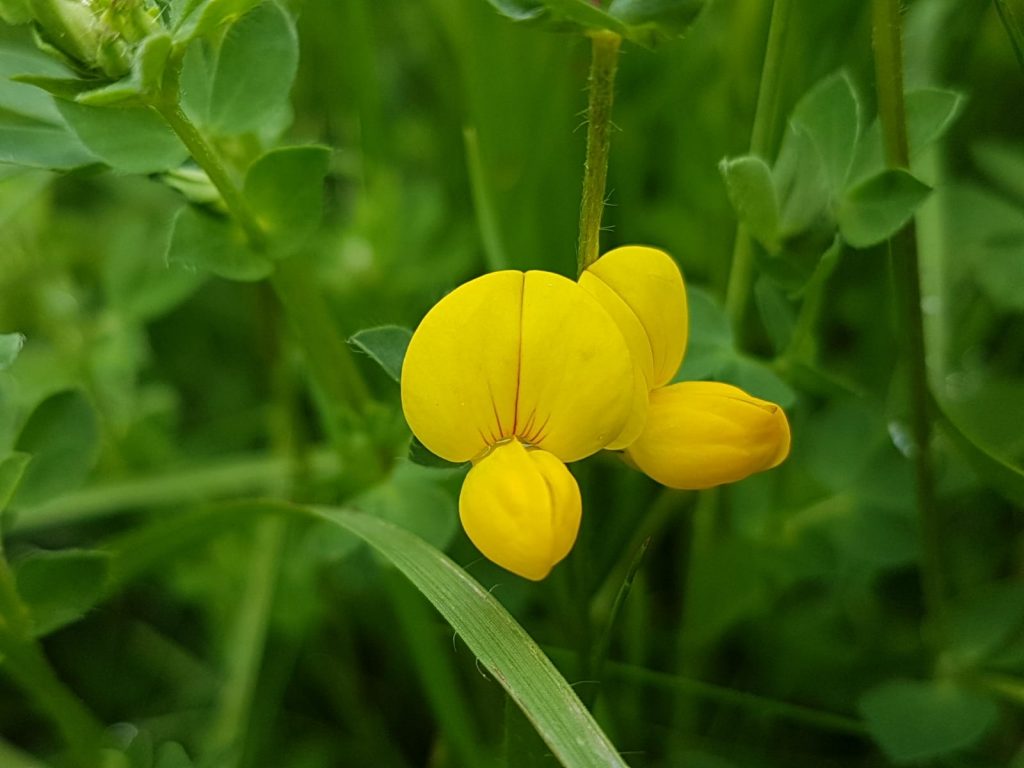
Bird’s foot trefoil -
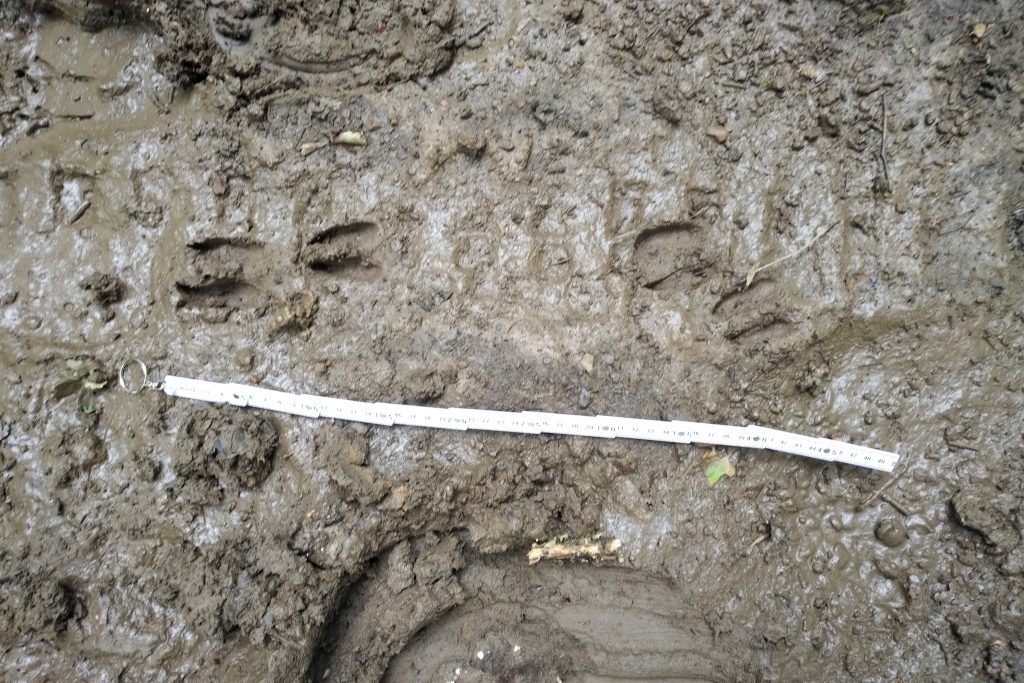
Roe deer tracks -
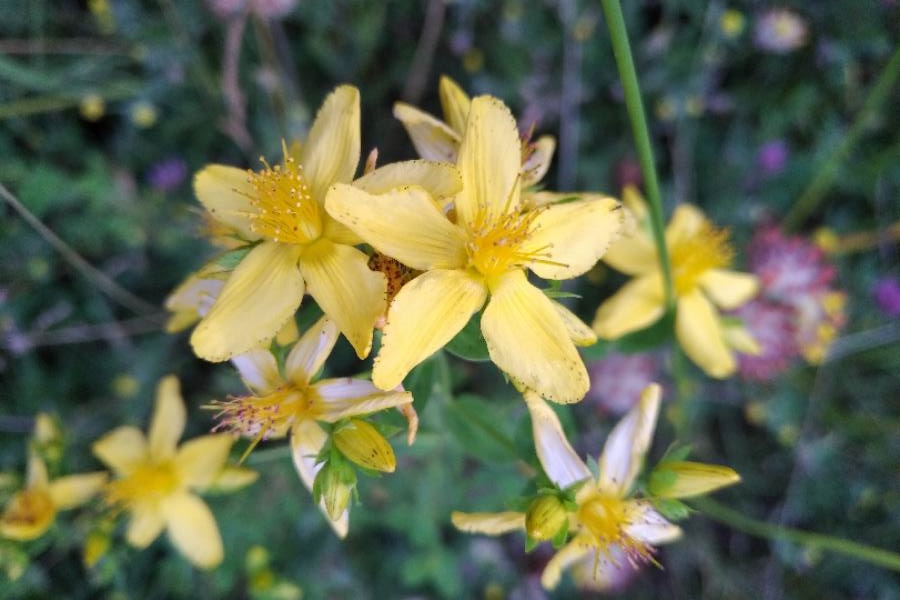
St John’s wort -
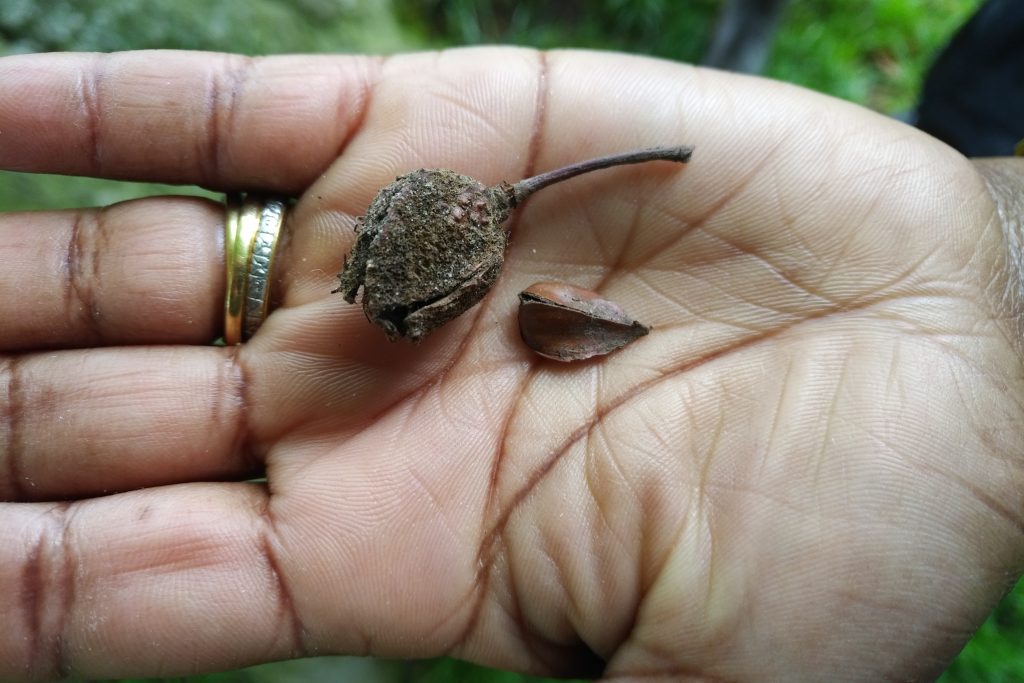
Beech nut -
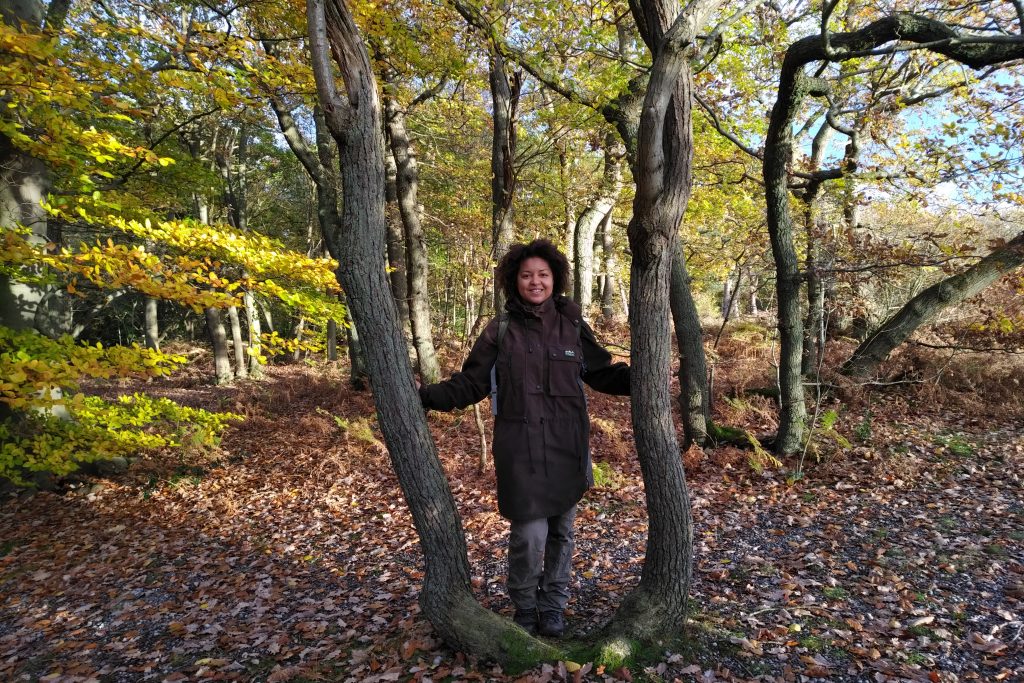
Ash tree -
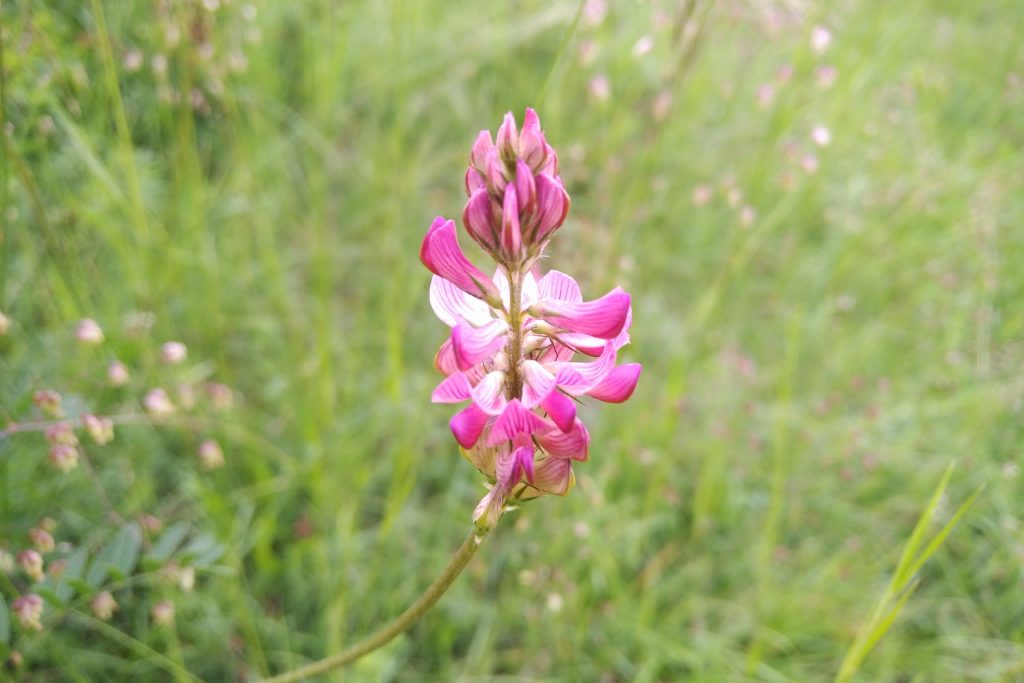
Common sainfoin -
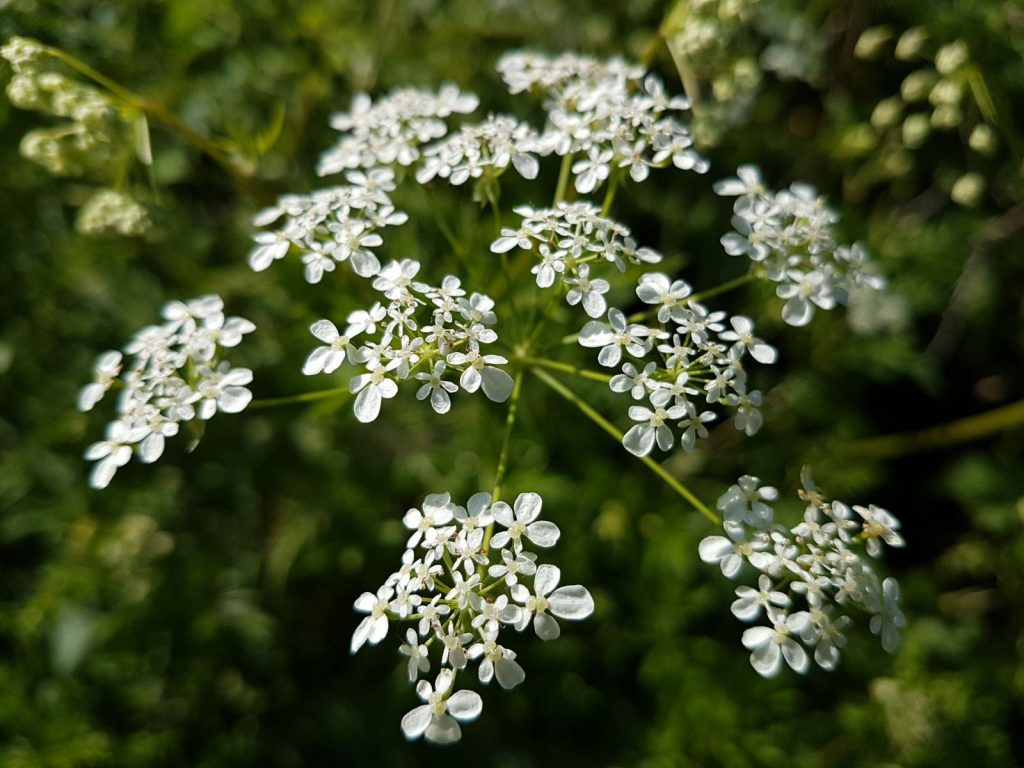
Cow parsley -
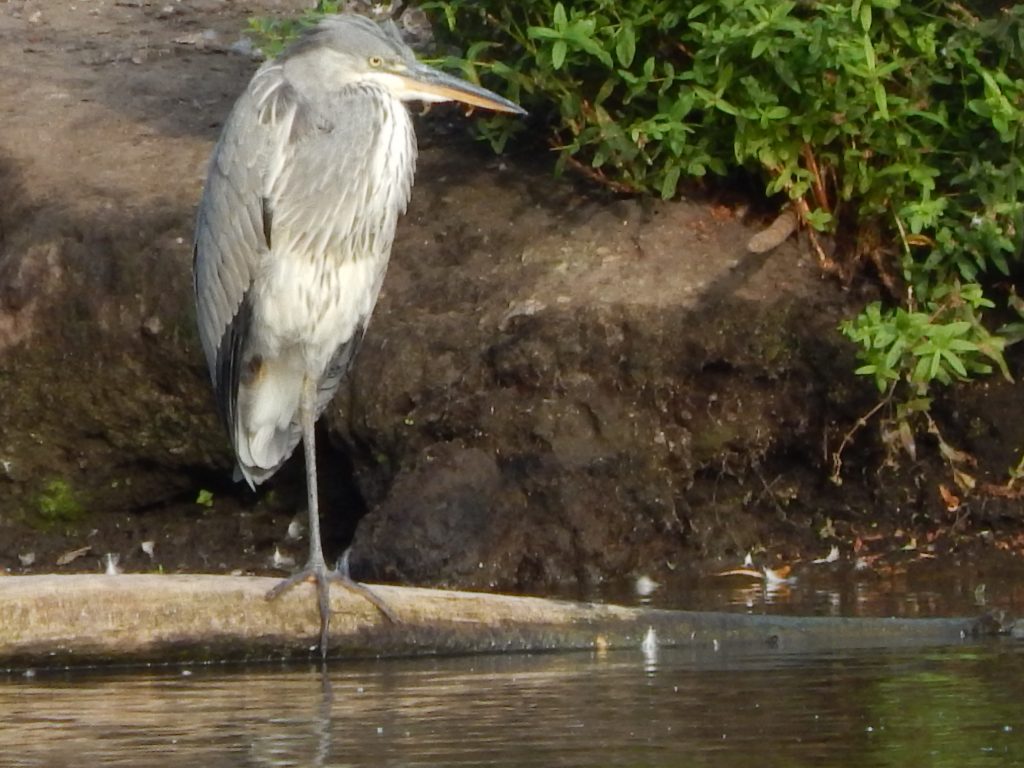
Grey heron -
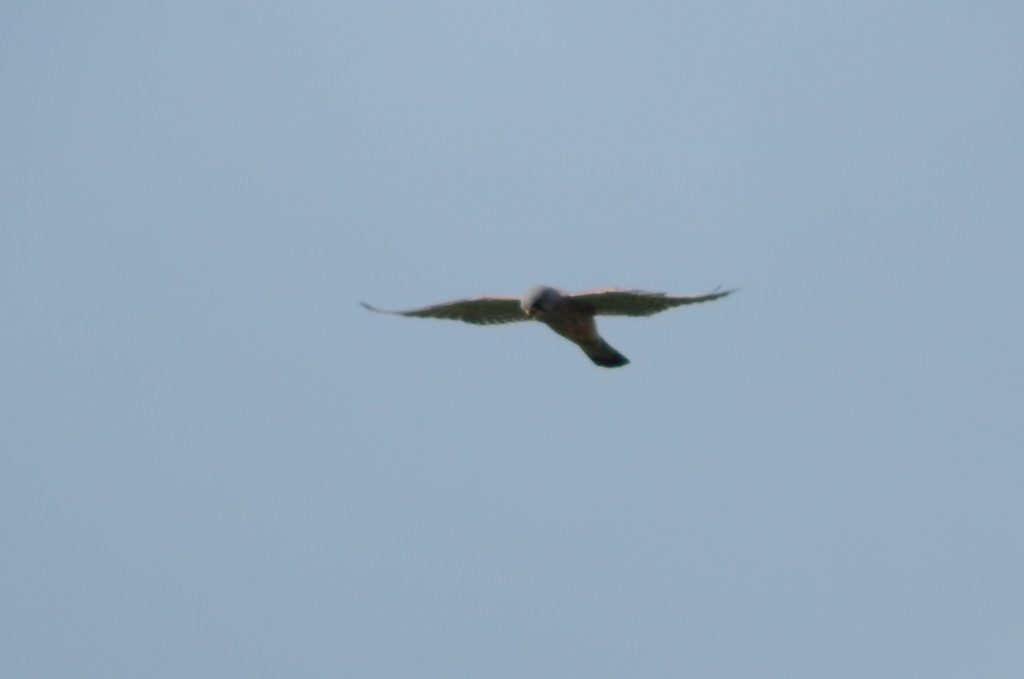
Kestrel, hunting -
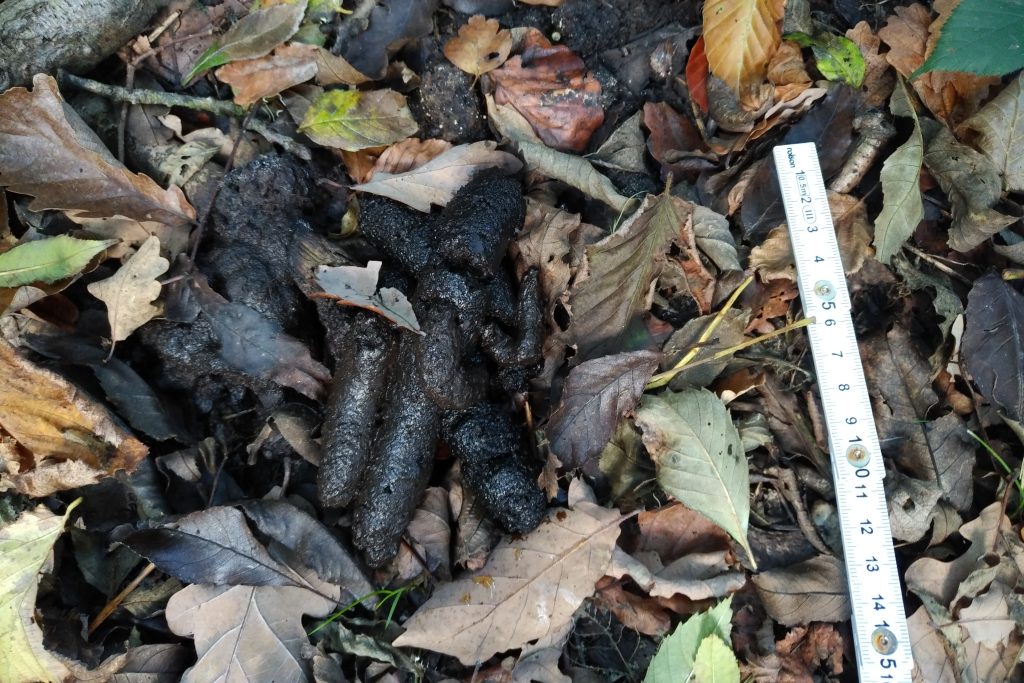
Badger scat -
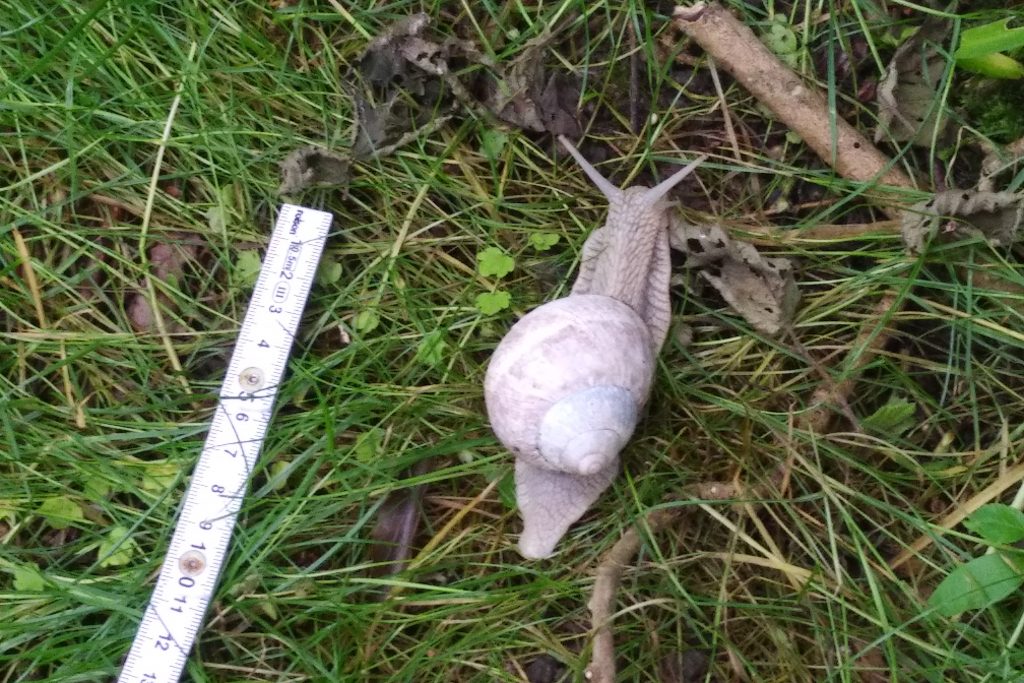
Roman snail (UK’s largest snail)
The Nature Connectors way
Befriending nature and others
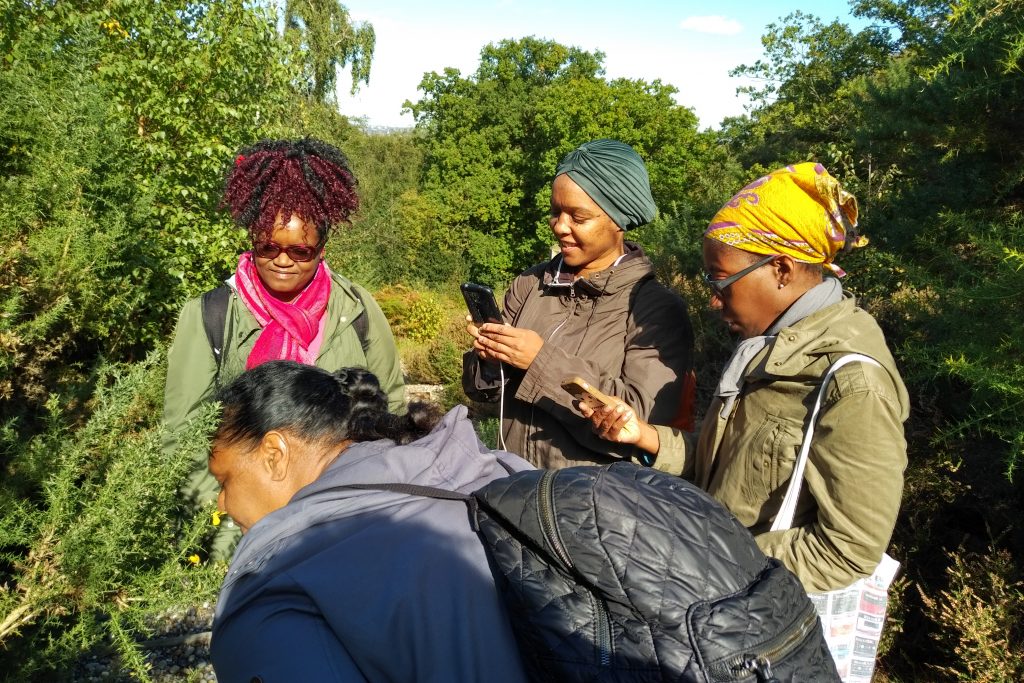
The course is run at a relaxed place, in walking together and resting by the fire there is plenty of time for listening, talking, laughter and sharing.
Through walking, watching and listening we get to know our natural neighbours, identifying plants and animals; turning strangers into friends.
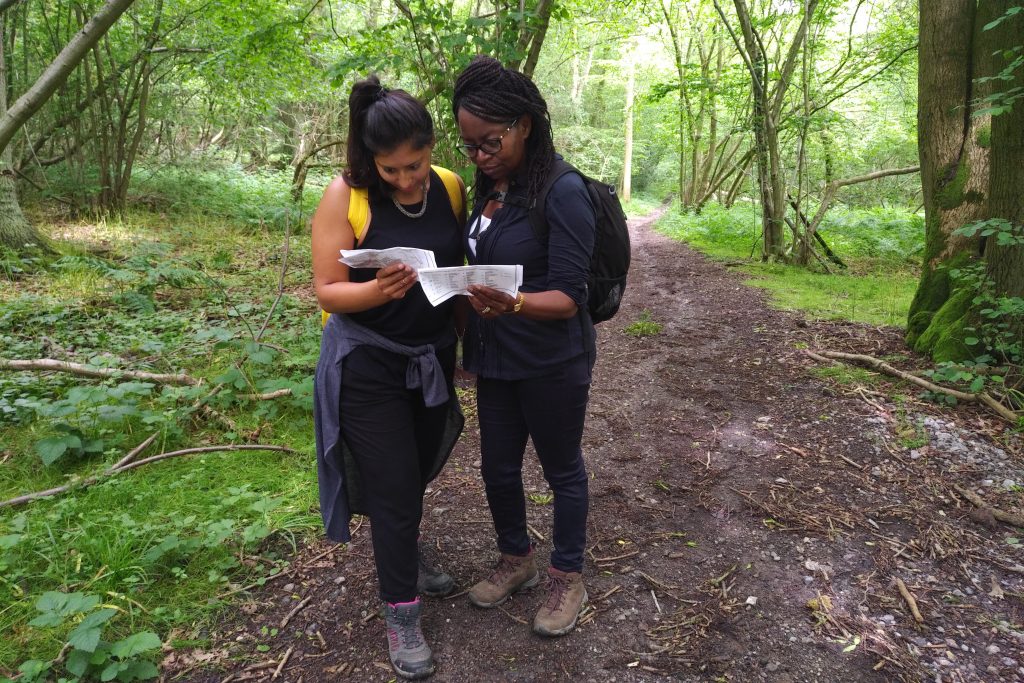
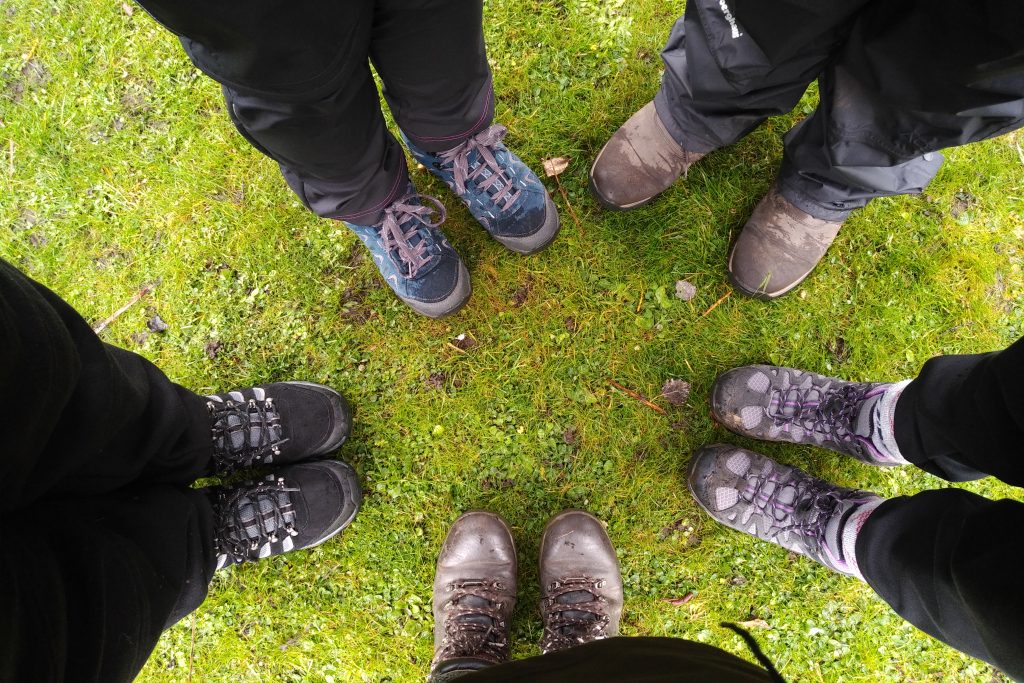
Relational learning
We learn through spending time together in conversation, rather than formal teaching – we call this ‘the grandparent model’.
Reflection
We create space within each session to reflect around the fire or on the trail, exploring themes raised by what we are experiencing. These might be our experiences as people of colour in UK natural settings, connections with nature in our countries of heritage, cultural associations with nature and cultural traditions connected to nature.
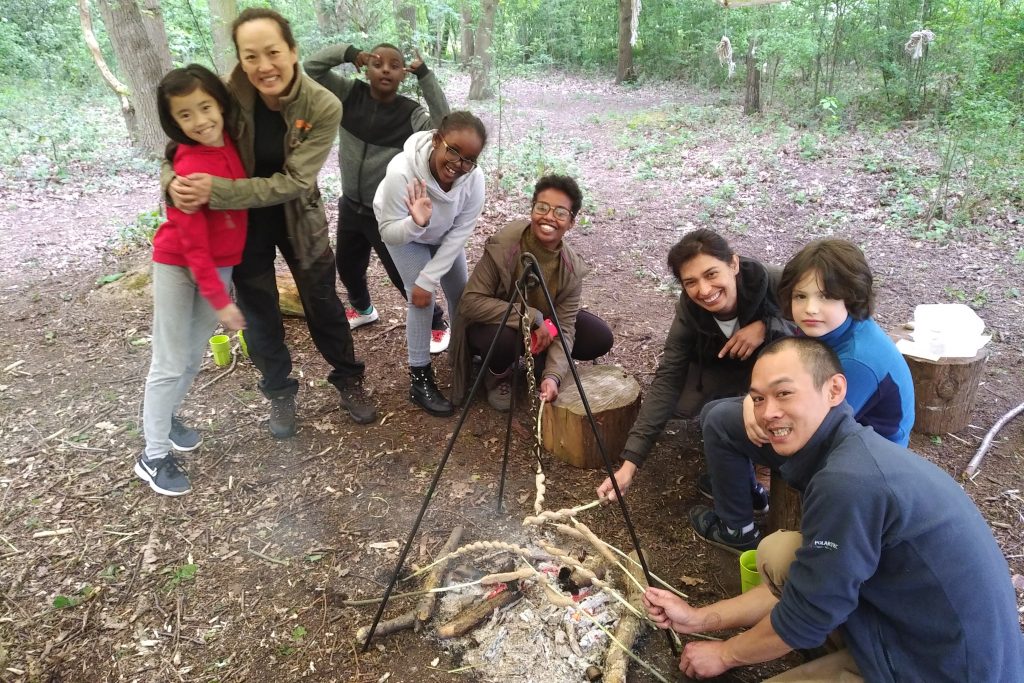
Meditation
We use meditation and contemplation to tune in with the life around us. Connecting with our embodied experience of the natural world and bringing awareness to our sensory reality in developing our relationship with nature.
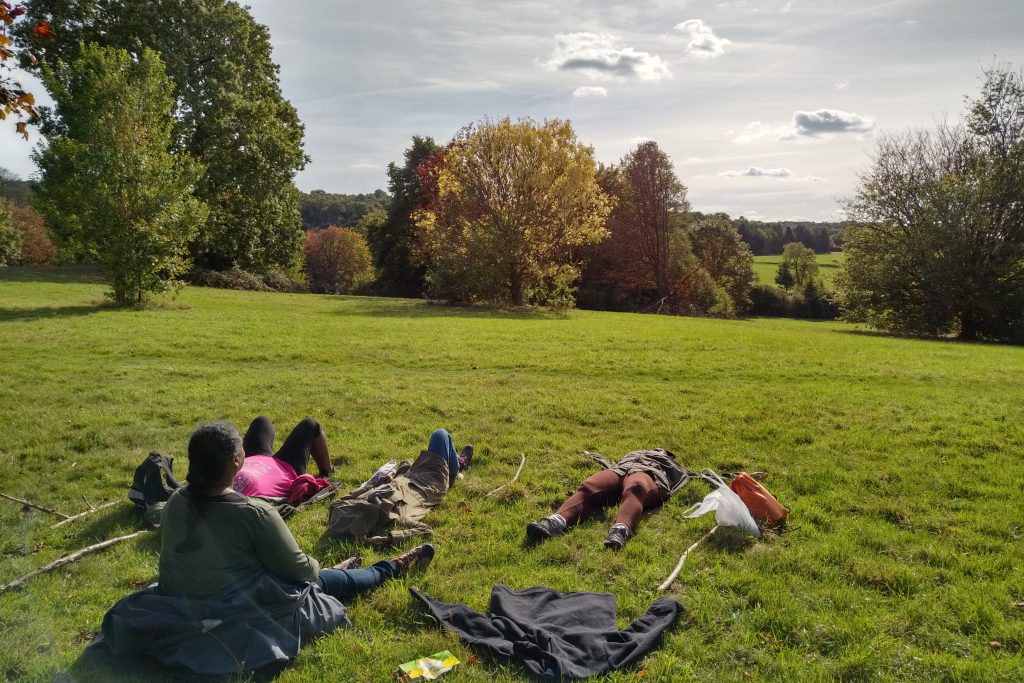
The ‘grandparent model’
When you walk with a grandparent you absorb a lot of knowledge without feeling that you are having a lesson. It is conversational and relational learning, at a pace appropriate to you. You may go off and explore, and come back to your grandparent when you have found something interesting and want to know its name. Your grandparent as they walk, points out things of interest.
We have lost this way of learning due to the generational disconnect with nature – without grandparents here who know the environment, how can we learn it?
We’re rebuilding a bridge back to an oral tradition of learning and sharing knowledge of nature. Books and apps are great, but relationships get missed – in relationship we can develop ourselves, make and strengthen connection with others – as well as learn about nature.
Walkers delight
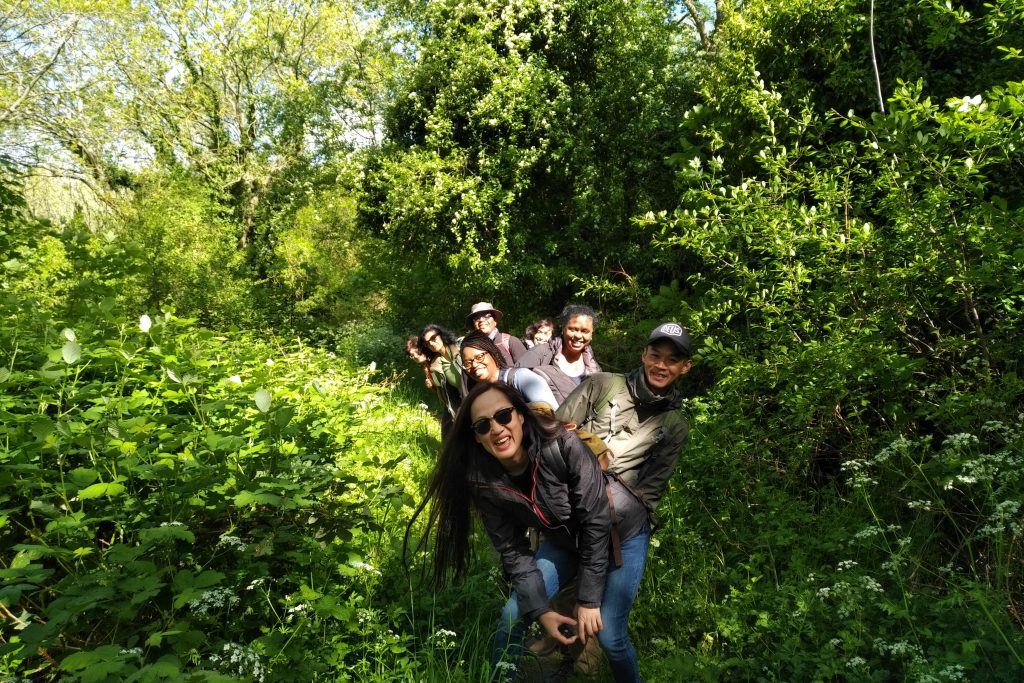
Community Connection
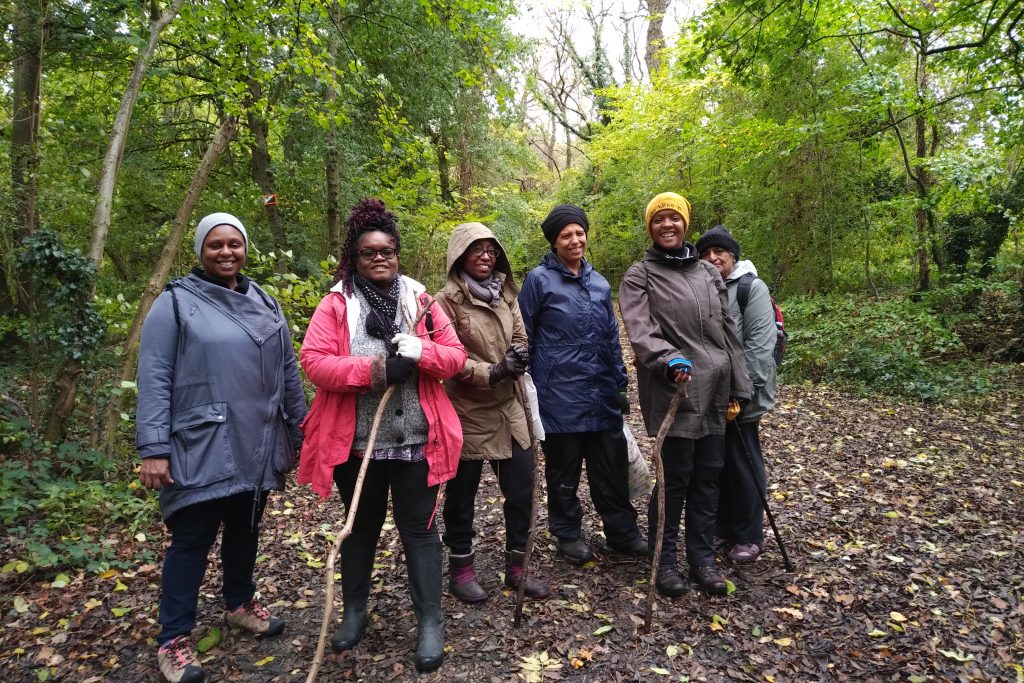
Nature Connectors has built a real community of people of colour who gather in nature to have fun, learn and feel good.
Intergenerational
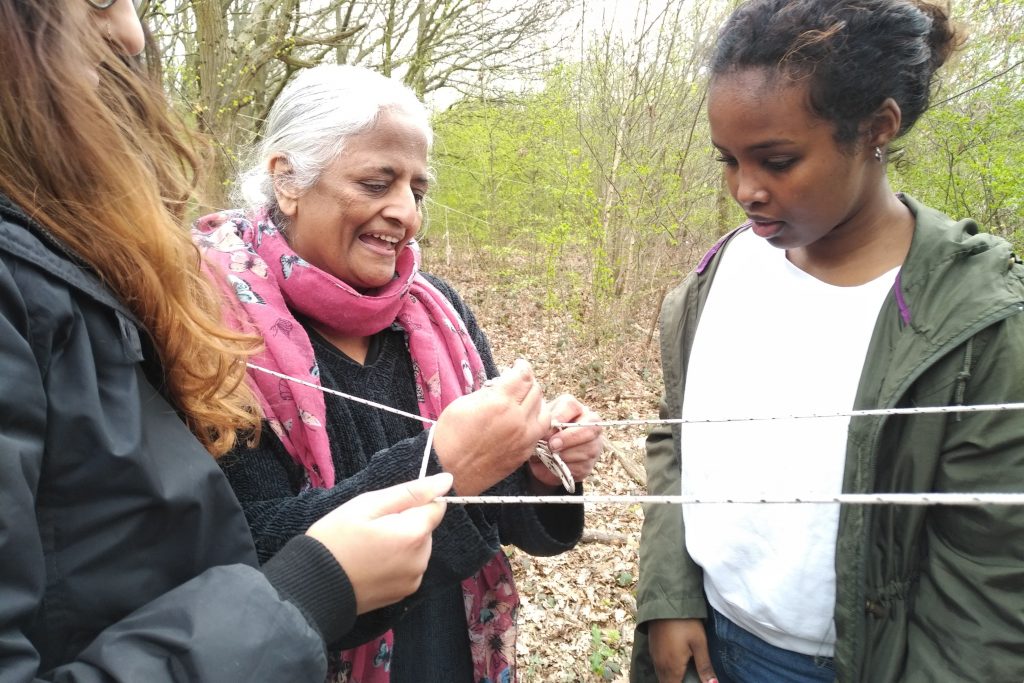
Nature Connector participants span generations, with people in their 20s, 30s, 40s, 50s and late 60s taking part. We appreciate spending time with people from other generations and sharing our experiences from different eras. Much is learnt by hearing about the issues faced by people from other generations and how they dealt/deal with them.
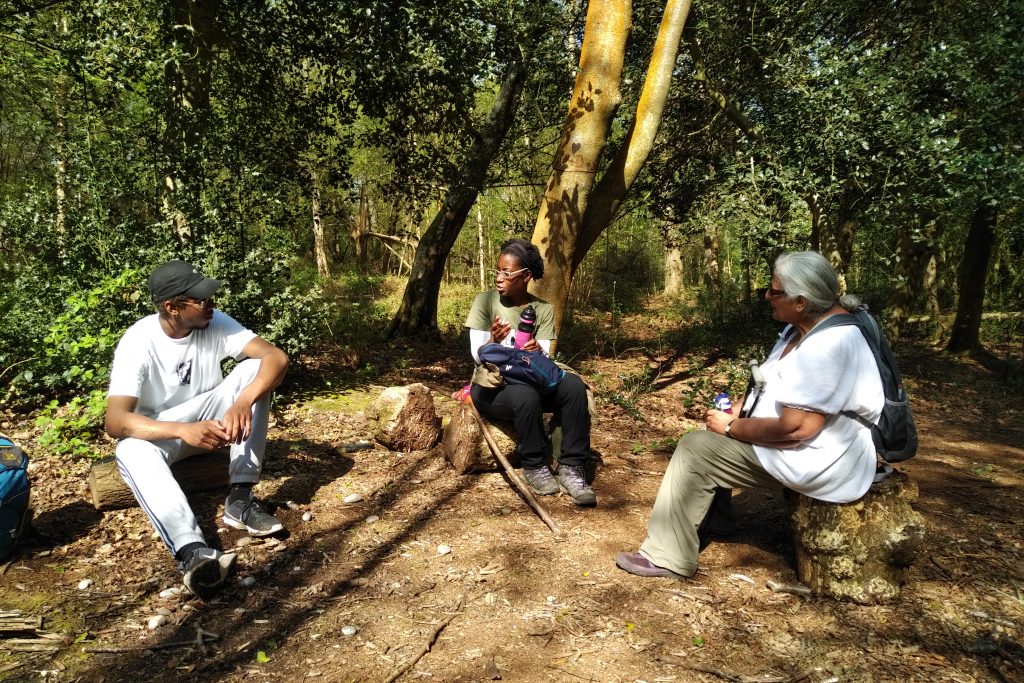
Intimacy
One of the strongest impacts of the experience is the development of intimacy – with each other and with the land.
Intimacy is the ability to be your true self without a mask, to be heard and respected and to be able to reciprocate this to others.
“Intimacy seems to be a casualty of 21st century living – becoming rarer and rarer. As such many are not used to it, are uncomfortable with it and unable to allow themselves to settle into it.“
Many participants reflect on how deeply they become connected to others, in such a short space of time across the six weeks. Although they don’t know surnames, what each does for a living, or other such staples of small talk, they get to know each other’s character and essence at a much deeper level and come to feel able to be themselves with ease.
Though not everyone is always able to receive or sit with intimacy – it is offered and the space is held to create the conditions for it. Groups reflect together about the kind of qualities and values they needed from the group to feel safe and the boundaries of these are then held by the facilitators:
- to respect each other
- to listen to each other
- accept that we will have differences
- confidentiality of what is shared to be respected
- all feelings welcome, but we should take responsibility for them (rather than blame outwardly)
Objections to Nature Connectors
Negative responses to the introduction of a course working with people of colour
Nature Connectors is an innovation designed to correct an imbalance in participation and open up nature to people for whom it feels closed.
As if to underline the attitudes that can lead to such feelings of exclusion in people of colour, we received a number of negative responses to encouraging black participation and the setting up of Nature Connectors by Wild in the City.
Responses from white people who felt excluded from a course designed to encourage black and minority ethnic participation indicated that they could only understand the issues from their own frame of reference.
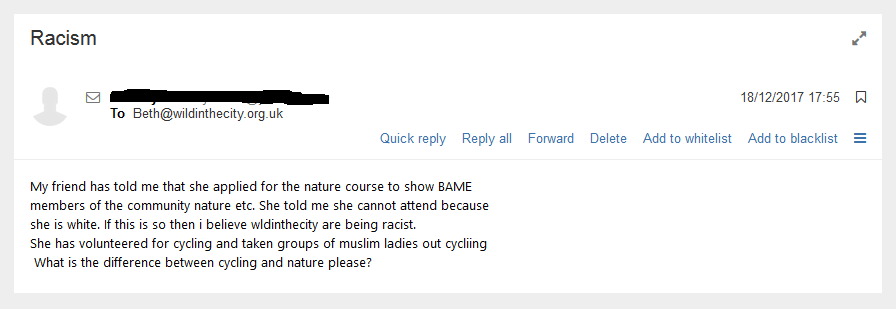
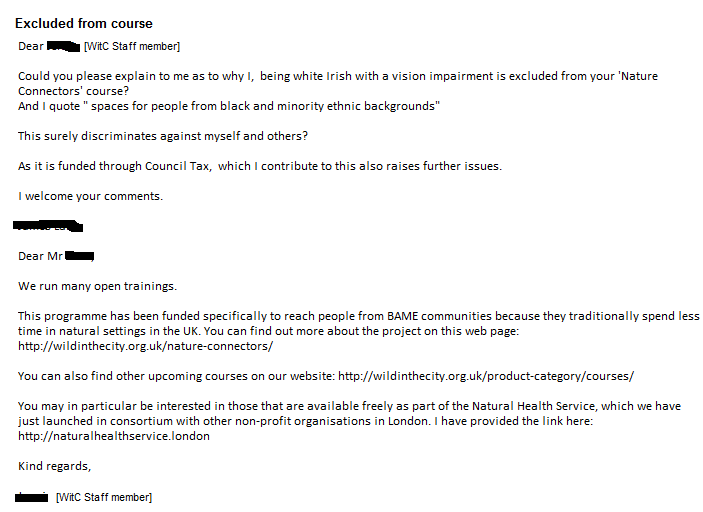
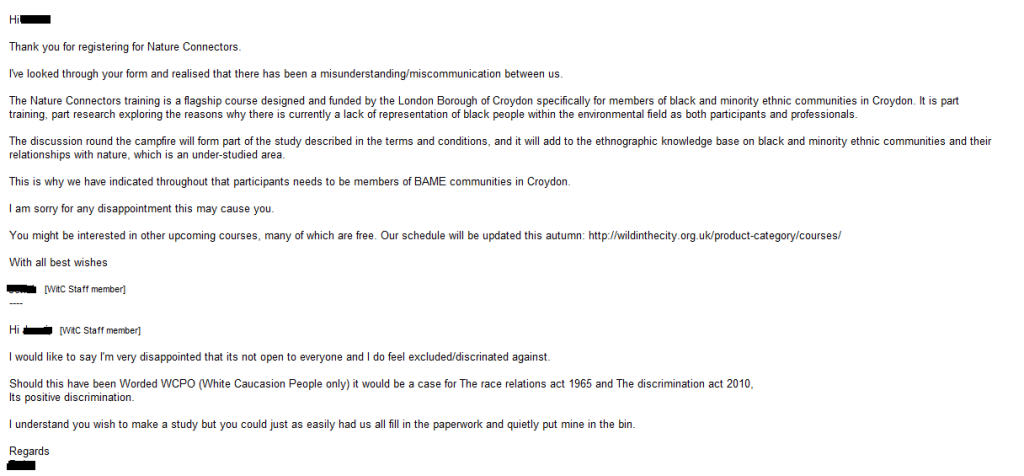
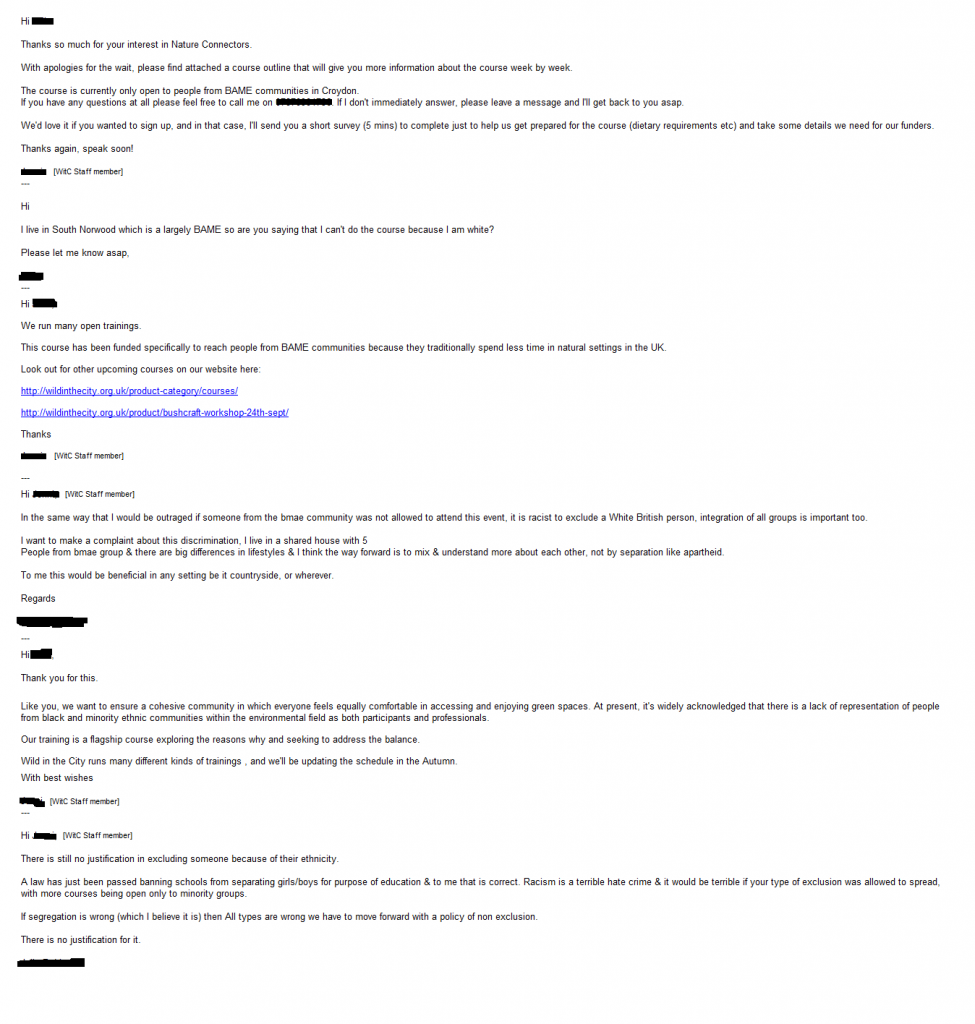
Those objecting were oblivious to the conditions and circumstances which have excluded people of colour. It is notable that they each assumed we would be less aware of the issues than they are, making an assumption that we hadn’t thought about something, rather than that we may have a point they could learn from.
One reason for the objections was that Nature Connectors was branded and promoted in the mainstream, whereas typically black projects or community events only promoted within small ‘black’ circles don’t tend to attract opposition; being assertively black within the mainstream attracted ire.
Nature Connectors asks that someone be able to answer in the first person the question how do you feel about spending time in nature as a person of colour? If you cannot answer in the first person, from your own experience, you would be creating further limits on people of colour having a space in which to reflect on and work through the experiences which have kept us away from nature.
We intend to open up dialogue and opportunities for others to experience the course, but this programme is a first of its kind in offering a reflective space for people of colour to look at barriers and repair broken bonds.
Encountering whiteness in green spaces
Experiences of the Nature Connectors groups over the course of their 6 week programmes highlighted how some white people can challenge our presence in green spaces – through aggression, undermining, or ignoring.
A white woman telling us that we looked lost as we sat in the woods enjoying the sun, eating our sandwiches. A white man becoming irate and shouting at us that he was going to call the police after we asked him to retrieve his dog seeking out food from our group as some members were frightened of it. A white conservation leader who interrupted our identification walk, assuming there wouldn’t be a leader in a group of people of colour imposing himself as a guide, followed us and got defensive when we asked him to leave us to get on with our walk.
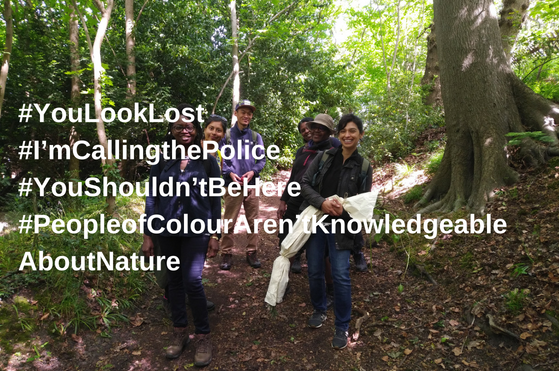
The encounters variously left us feeling shocked, confused, angry and patronised, it is tiring to be confronted with overt and drip drip messages that our presence is unwelcome, that we’re out of place or less knowledgeable. We valued having been together and the opportunity Nature Connectors gives to talk about the impact of such encounters, making it easier to name them for what they are and to give space to reflect and maintain a sense of entitlement to be in nature.
Join us
Our Nature Connectors are now sharing their knowledge with friends, family and community.
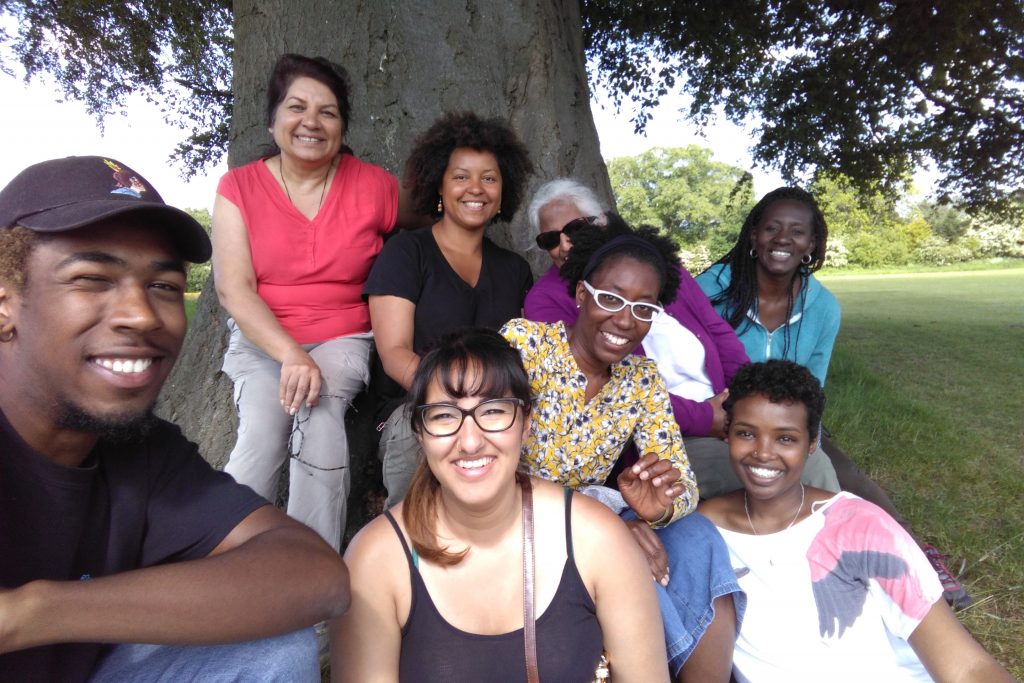
We’ve rebuilt bridges back into nature in the UK, lost to many people of colour living in the West. We’ve helped to nurture a sense of belonging and addressed barriers, experiences of racism and fear of hostile encounters. The course has a positive impact on health and well-being, and creates friendships and intimacy with others and nature.
Nature Connectors now lead Wild in the City’s Natural Health Service sessions supporting others in developing their relationship with nature.
We hope that more people will join us in exploring and enjoying time in nature – our parks, fields and woods – within and outside London.
Our Stories
Our Nature Connectors had many different reasons for joining the programme and each developed their own unique relationship with nature, the group and the habitats that we visited.
Brenda’s Story
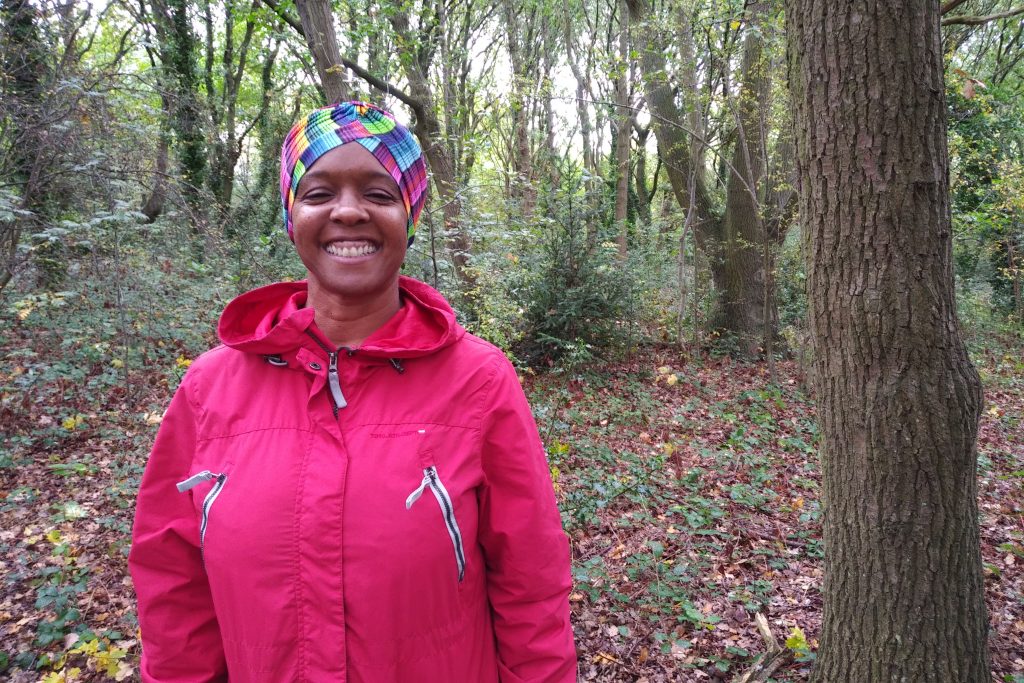
Brenda started the experience feeling unsure about contact with nature and anxious about animals and insects. By the end of the Nature Connectors programme she was assisting on our Natural Health Service sessions sharing her knowledge with others.
“I had an amazing time in the bush . . . still buzzy. Yesterday exceeded my expectations, I thoroughly enjoyed it.
I learnt to identify trees like Ash, Silver Birch, Willow trees, Oaks etc. How to make a fire – very exciting, how to use a saw safely, how to make a sliding knot to adjust a canopy, also very exciting. Found it very funny to learn about another plant called plantain.
I enjoyed sitting with others round the fire in the Great North Woods which I only knew existed yesterday despite living in South Norwood for 49 years.
I’d like to thank each of you for being part of my journey in reconnecting and learning about nature.”
Michael’s Story
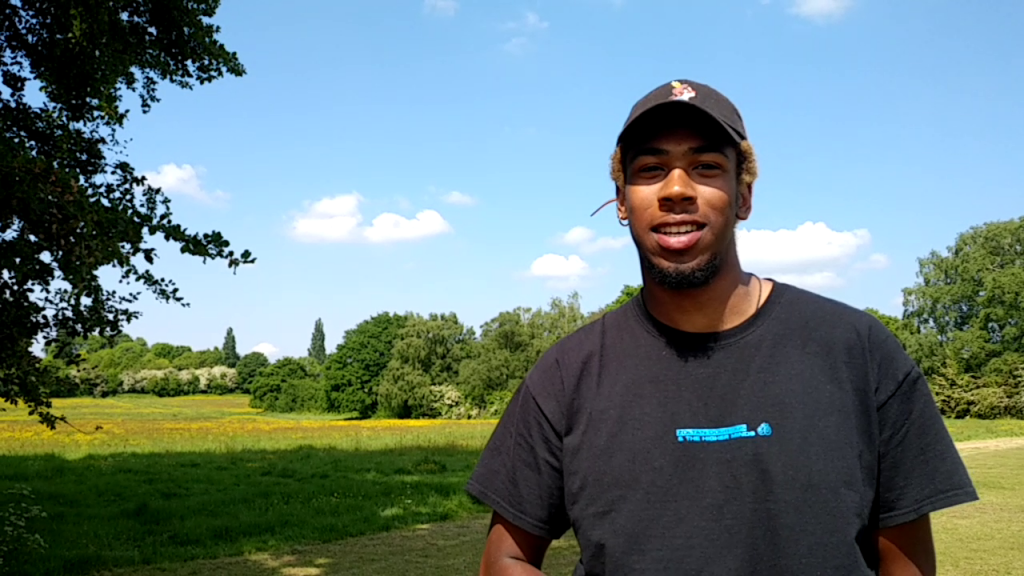
Michael was very humble on joining the course, “I’ve only done two walks, I’m not sure I’ll have the experience,” (one of his two was climbing Mount Kilimanjaro). Michael initially felt self conscious in isolated spaces, wary of how others might respond to him but soon came to find a sense of sanctuary in nature. Michael will be supporting our experiences for young people and the Outdoor Office.
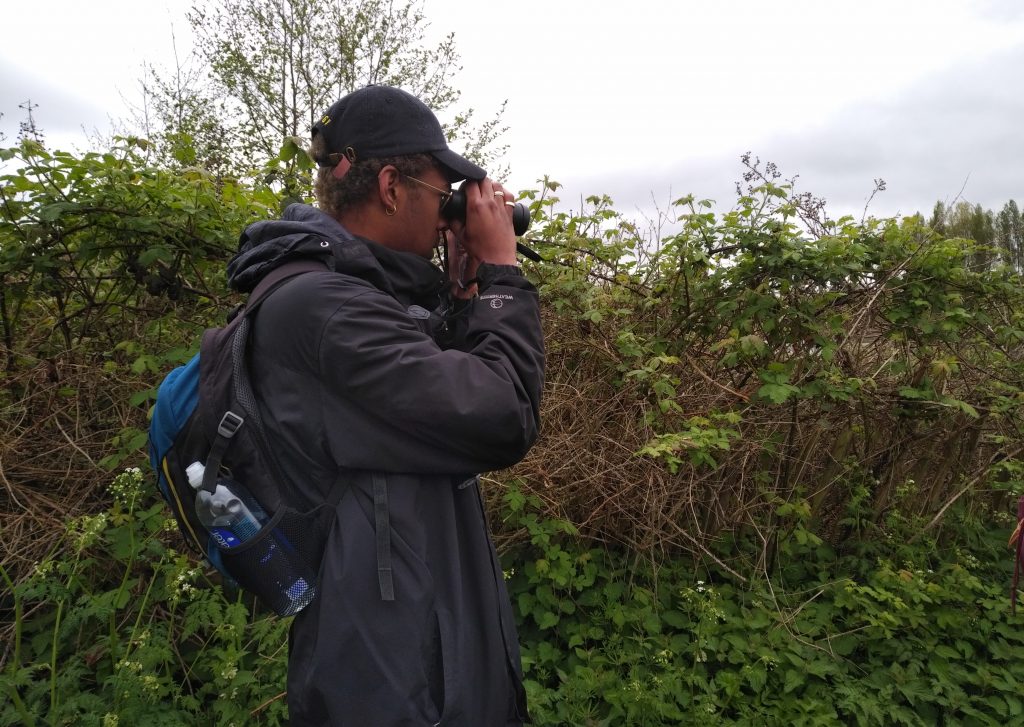
“I learnt a lot about plants, birds, trees and how to look after myself and stay safe.
I think the strong sense of community and openness has made me happier and also more comfortable in myself.
I feel more likely to access local green spaces and more confident in wooded areas.
I also use nature as a relief, i.e. when I’m feeling anxious/depressed I’ll go for a walk and sit instead of binge watching TV or playing games.”
Mona’s Story
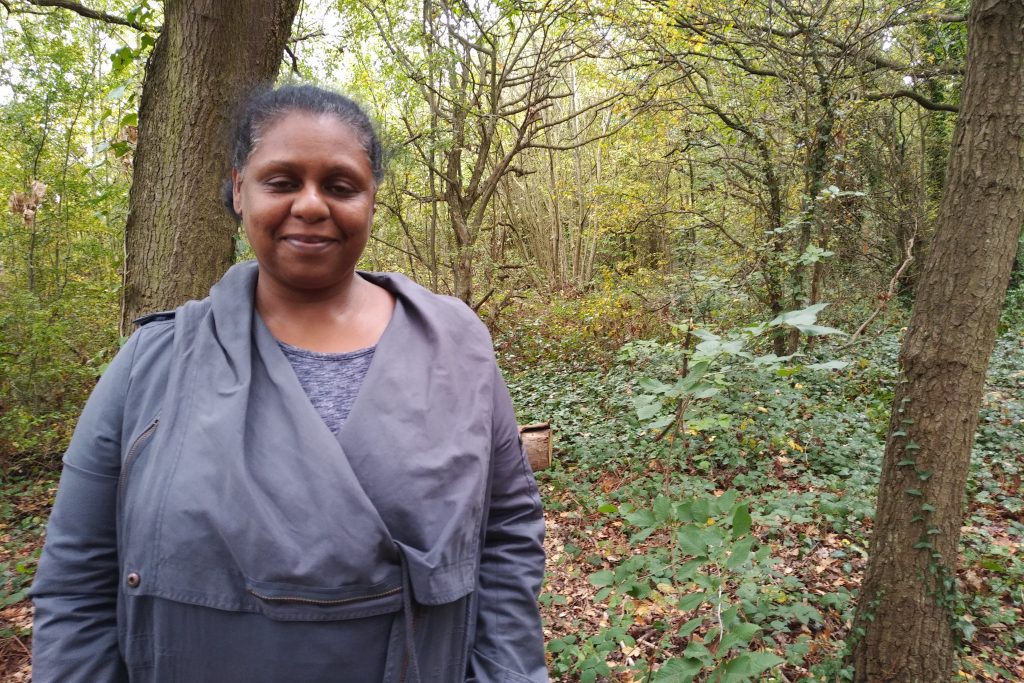
Mona helped to co-facilitate the reflective elements of the programme. She started out feeling unsure about her own relationship with nature, but her confidence increased as a facilitator in nature and she will join us again in this role.
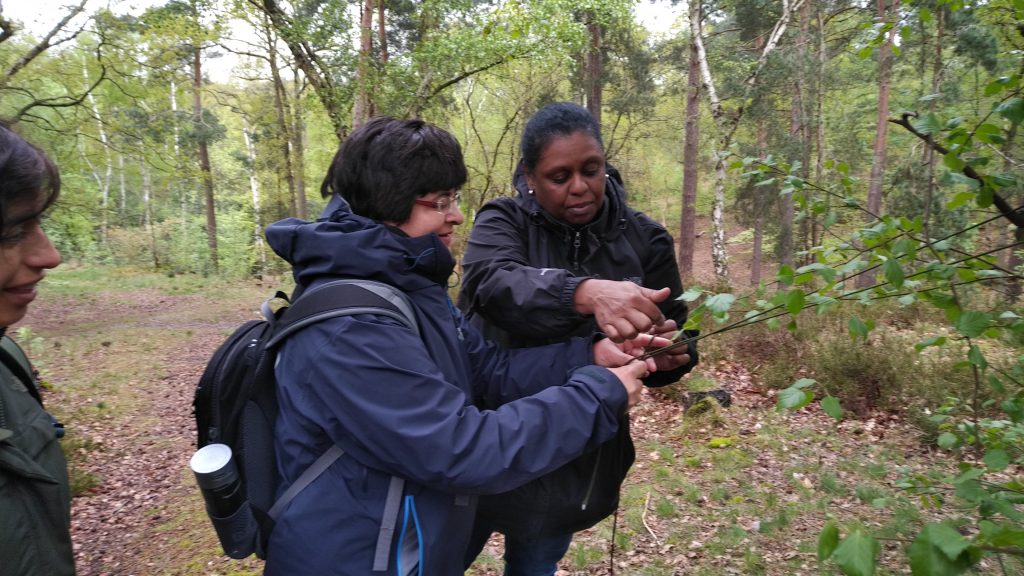
“I think I learnt about the complexity around the issue of black people in nature and that there are so many facets to it.
Also the ways in which racism intentionally or unintentionally plays out when we are in nature. I gained much from what people shared about experiencing it and how they managed it.
What I enjoyed – lots of things. The making of the fire, sharing in a space where people look like me and can understand some of my experiences.
Was chuffed I managed to throw the rope through the branch!! Would never think about attempting something like that!
Had a brilliant time today still buzzing from it!”
Premila’s Story
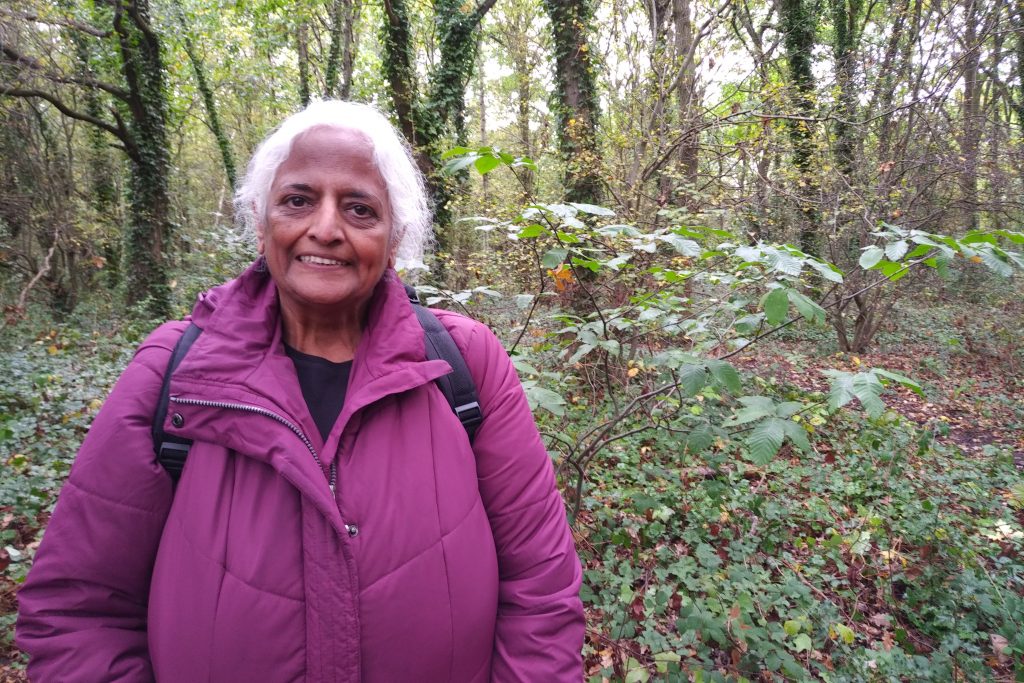
Premila started anxious about her abilities as an older member of the group, but lead the group with great skill, organising the schedule and activities for the final session. Premila is now co-facilitating reflective aspects of our Nature Connector sessions.
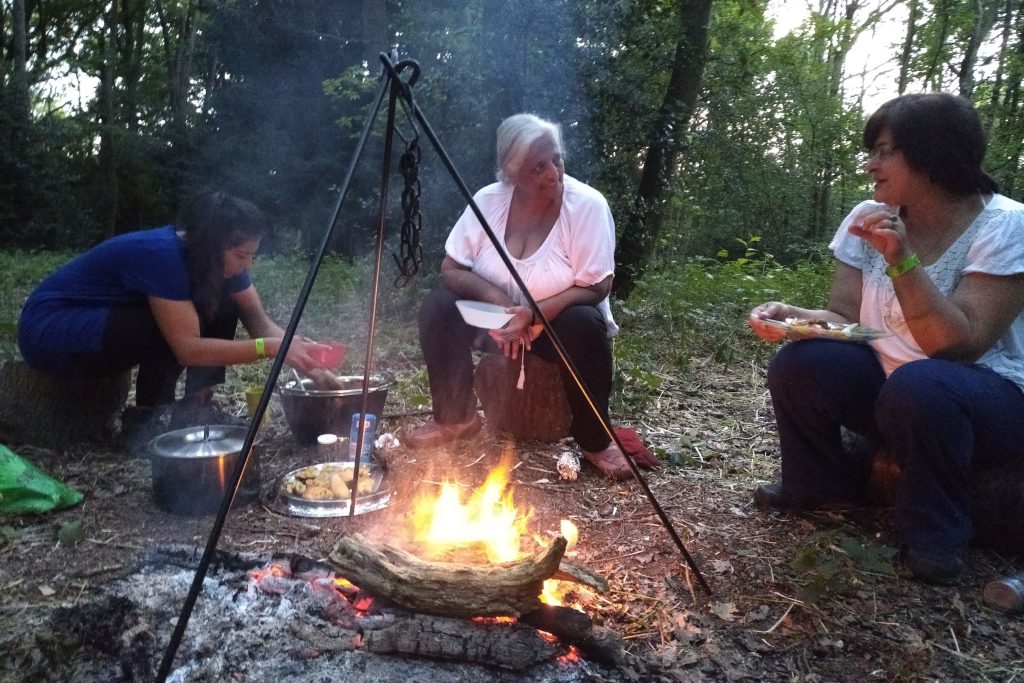
“Learning that South Norwood Lake exists and is peaceful and relaxing, with lots of potential for chilling in times of overload and stress – and also for exploring (maybe when I’ve built up a bit more confidence and courage to be in the natural world).
I’m ashamed to say I never knew about this venue before, even though I’ve lived in Thornton Heath for over 30 years! I know it’s not meant to be therapy but it’s certainly therapeutic.”
Mun’s Story
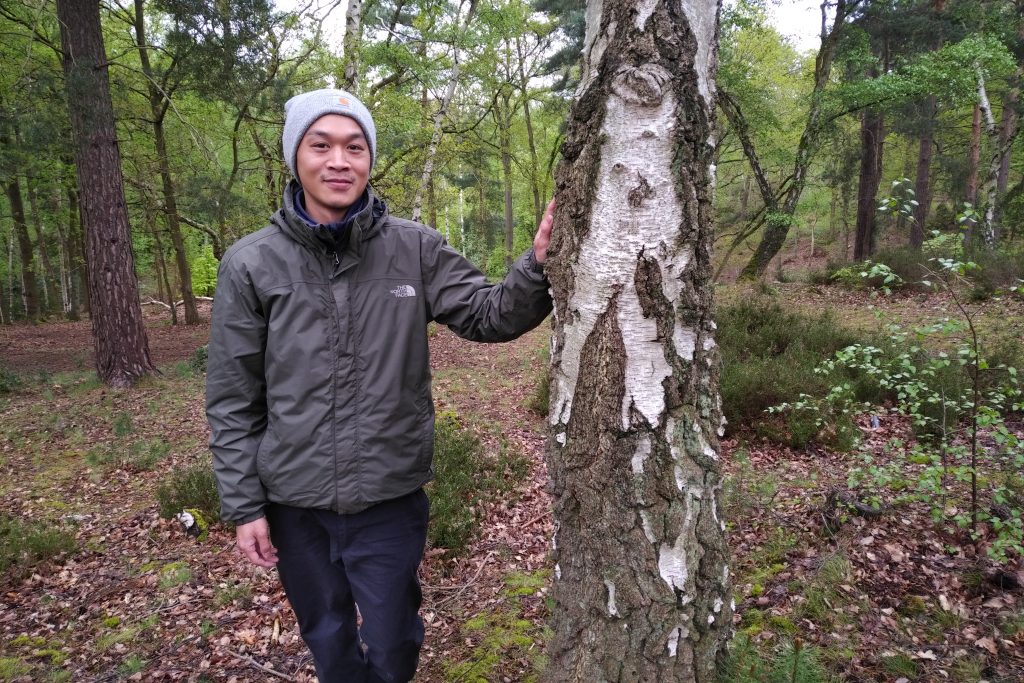
Mun had previous bushcraft experience having assisted on sessions in the South West, delivering to largely white participants. He enjoyed the opportunity to be with other people of colour in nature and share experiences of being seen as different.
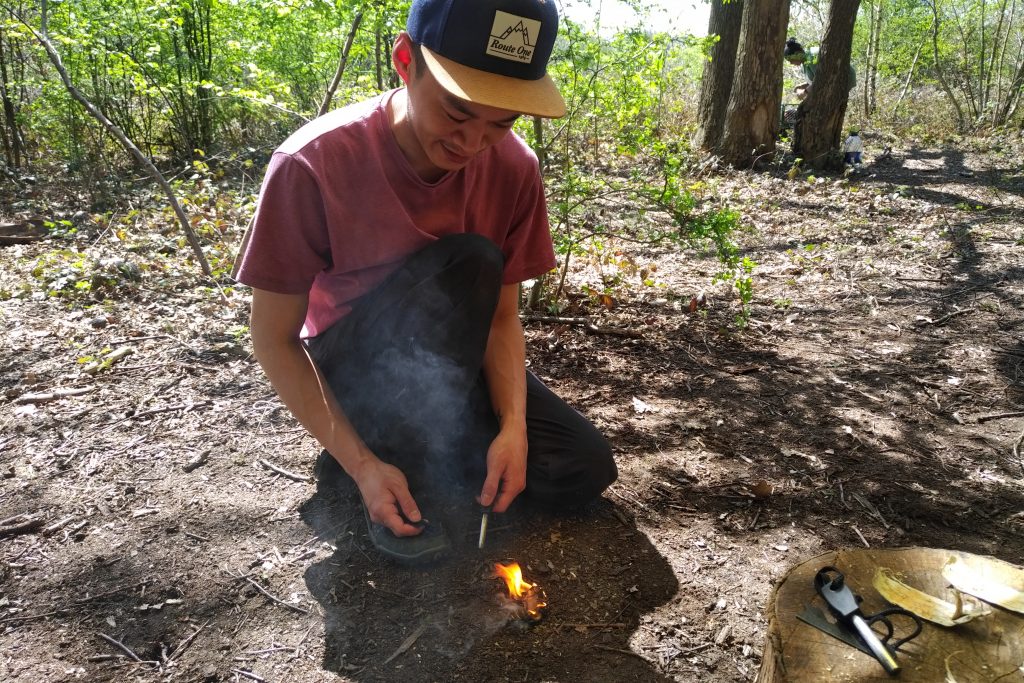
“I’ve increased my knowledge of plants, trees and relationships.
I’ve notice that I feel more relaxed and calm. I feel I set myself less barriers.
My favourite bits are when we share our experiences of being brown people in nature, how it can limit us and how we can limit ourselves sometimes. It’s an important message for everyone to hear, especially brown people.“
Course Leader
Beth Collier
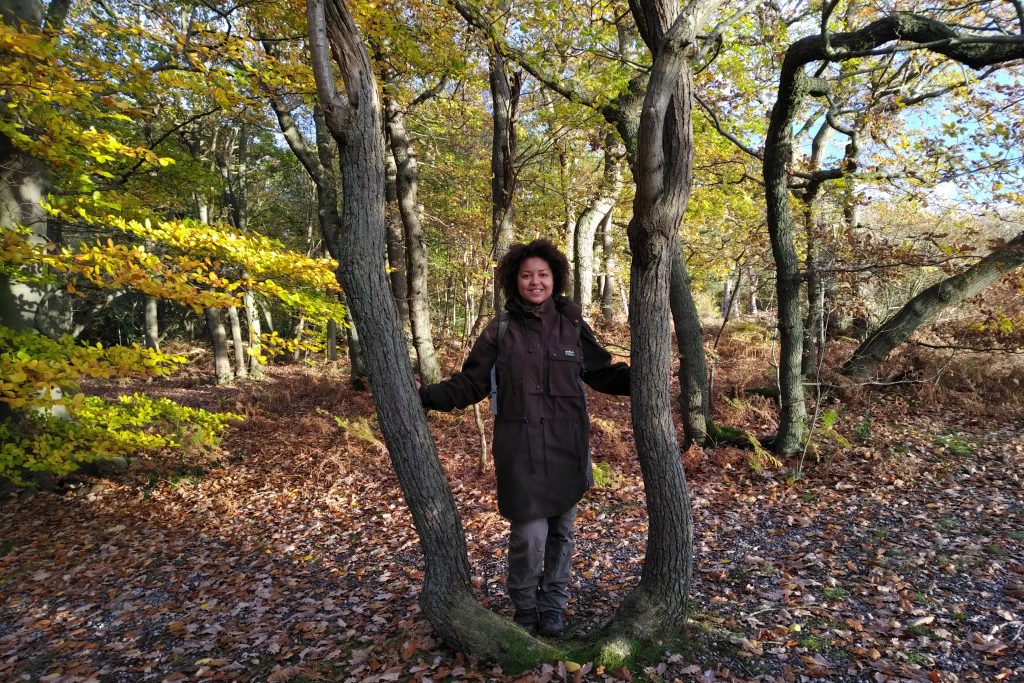
Beth is an anthropologist and Nature based Psychotherapist who teaches natural history and woodland living skills. She supports people in feeling at home in nature. Having grown up in rural countryside in East Anglia, she moved into cities as an adult and was inspired to share knowledge after seeing the high levels of disconnection and its consequences.
“My childhood was spent immersed in nature, enjoying exploration and just being in community with the natural environment, the more I knew about how to live outdoors the less time I had to go back to the house.
Leading this course has been very reparative for me, in being part of a community of people of colour in nature. As a practitioner, I have usually been the sole black person in most groups. Previously black friends were not interested in nature beyond sitting on a park bench.
It has helped me feel more secure and has supported my writing, I now have a group of people to ‘speak’ with.“
Course Facilitators
Our Nature Guide team work alongside Beth to help facilitate the course. They are: Deborrah Baksh, Nicole Worrica, Suzanne Worrica and Reena Morjaria.
Fund us
We’re looking for funders to support this innovative community building.
We’re continuing to develop Nature Connectors as a guiding programme, supporting volunteers to develop their own relationship with nature and to lead others in discovering nature in London and beyond; incorporating courses in bushcraft, natural history, walk leadership and ecotherapy.
info@wildinthecity.org.uk
Sign up to learn more about our Nature Connectors programme
Nurture a closer relationship with the natural world and with others.
